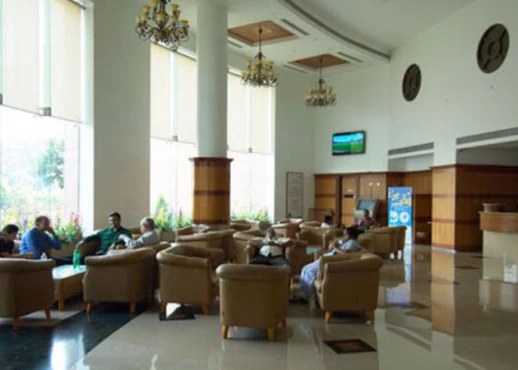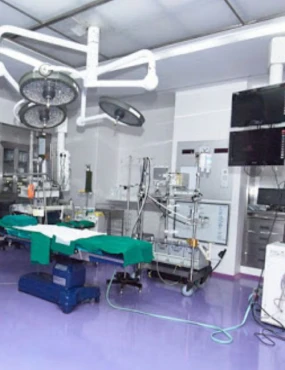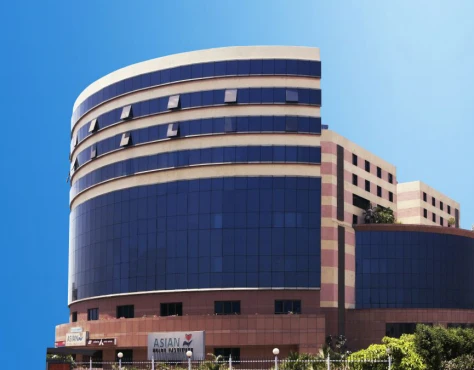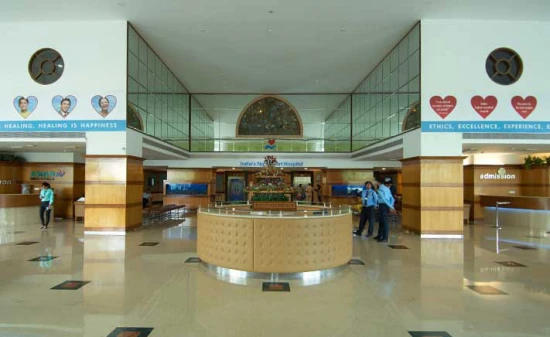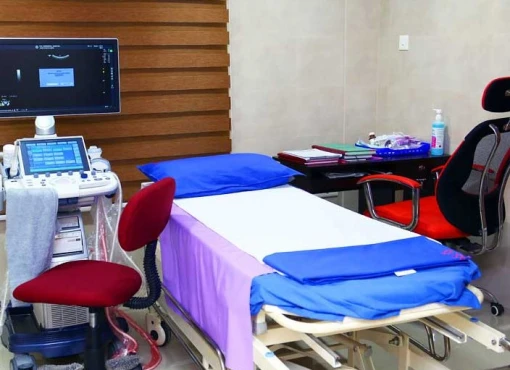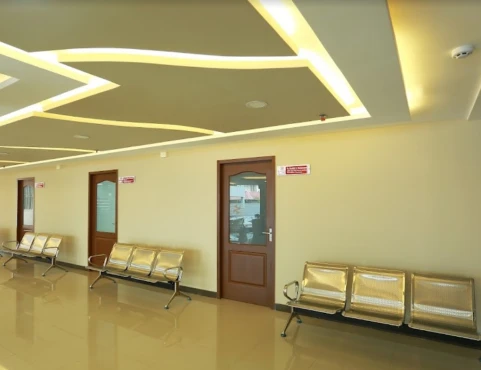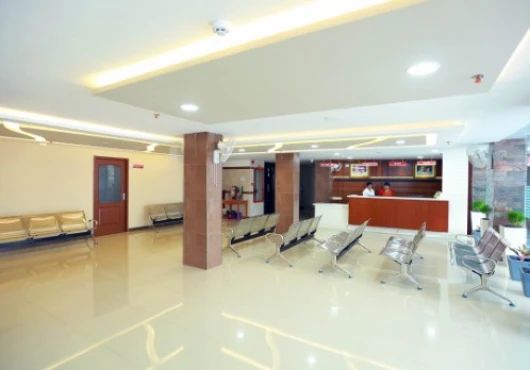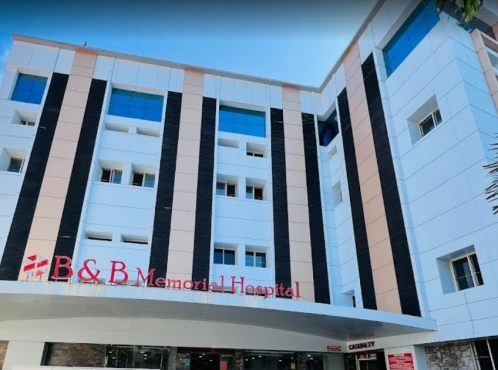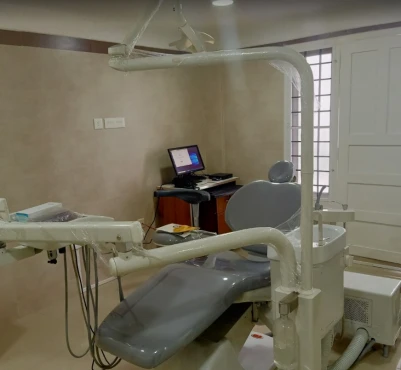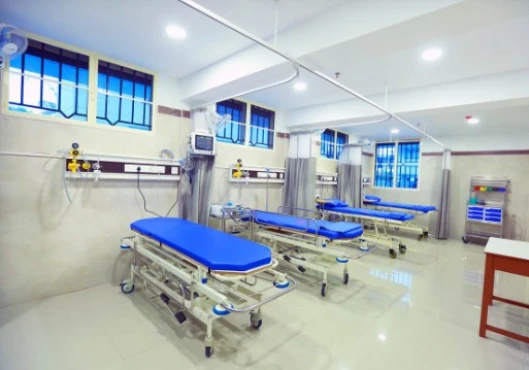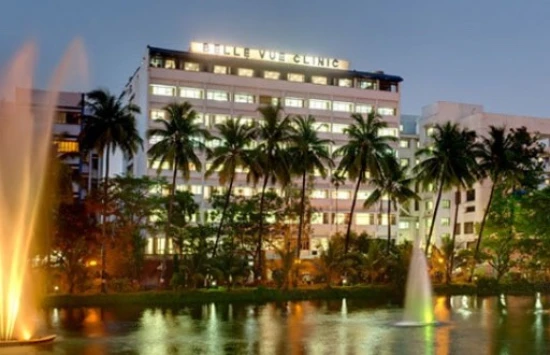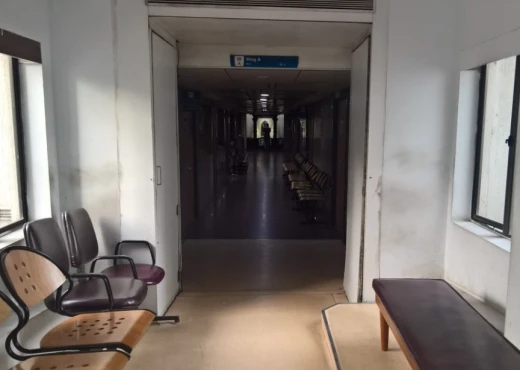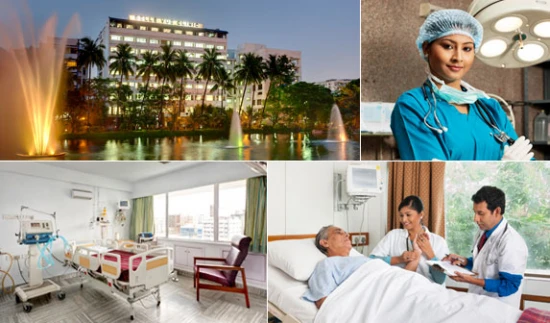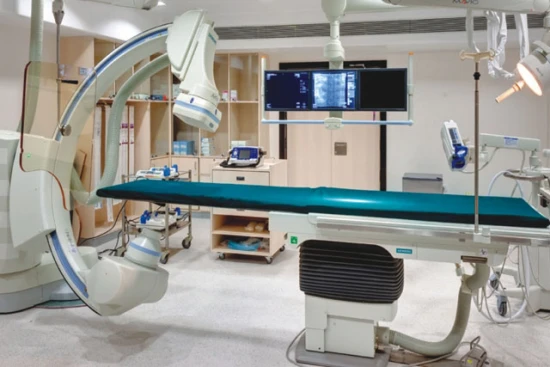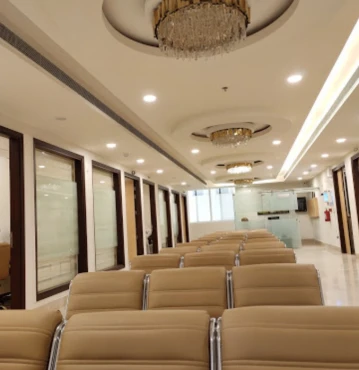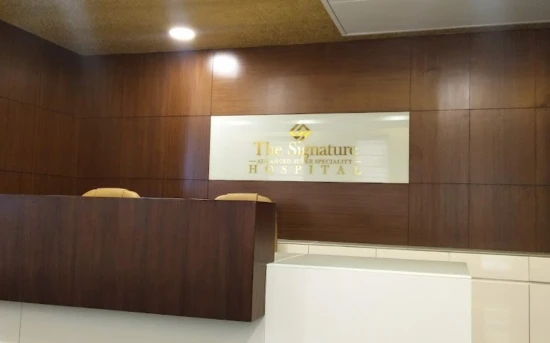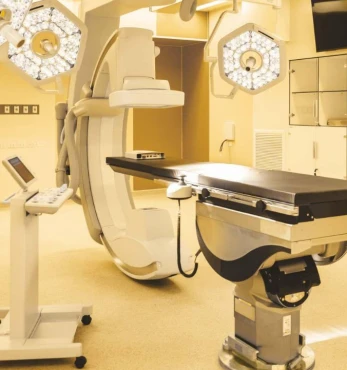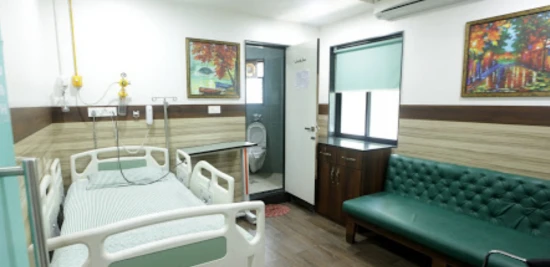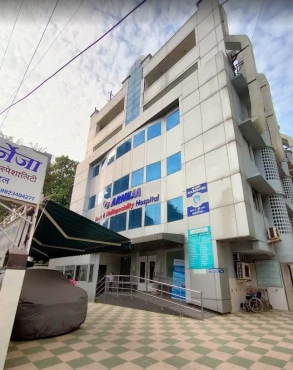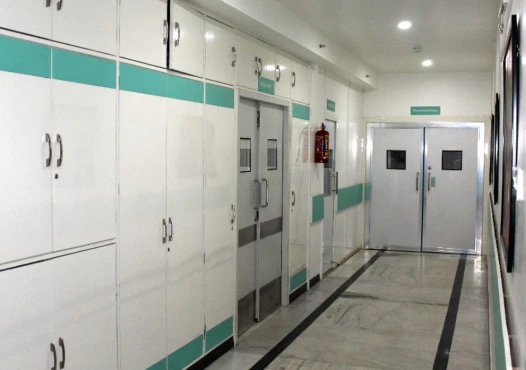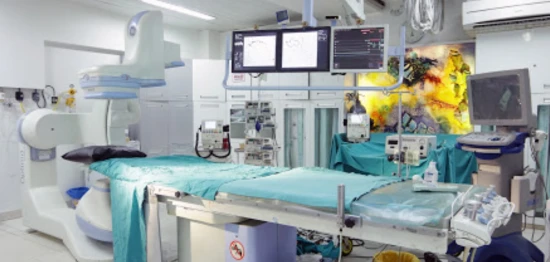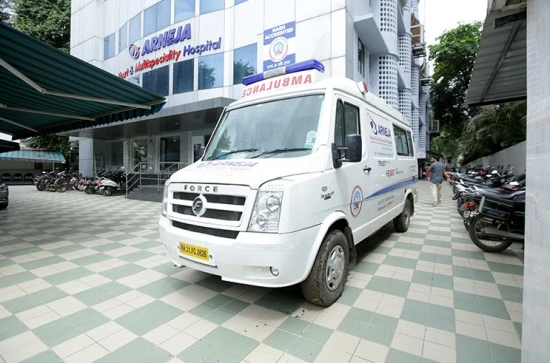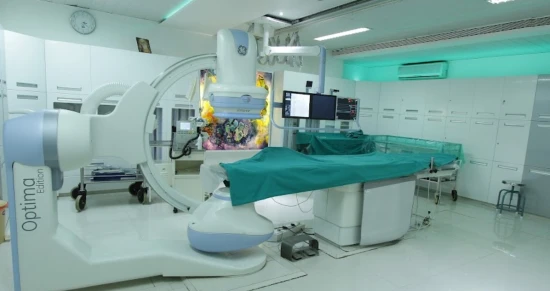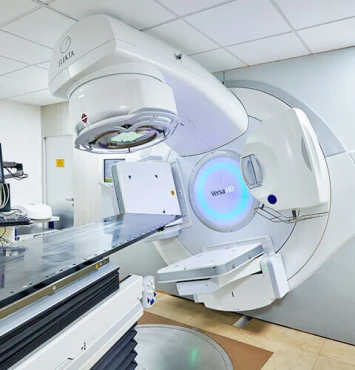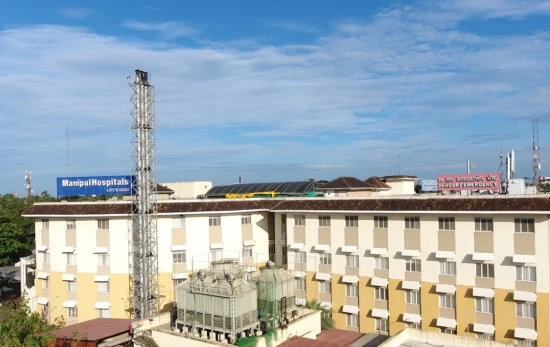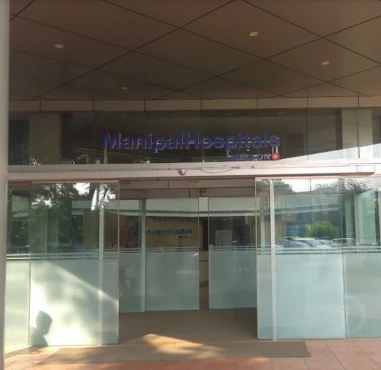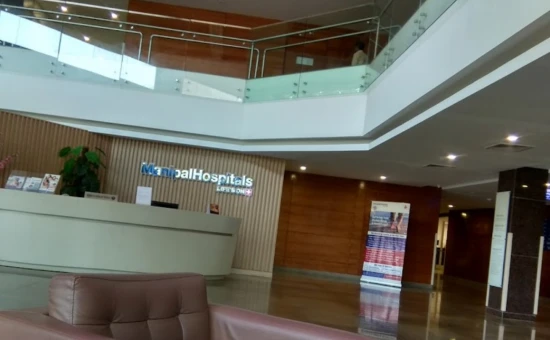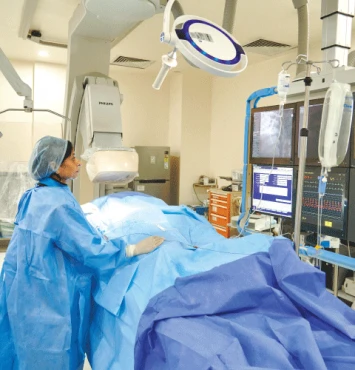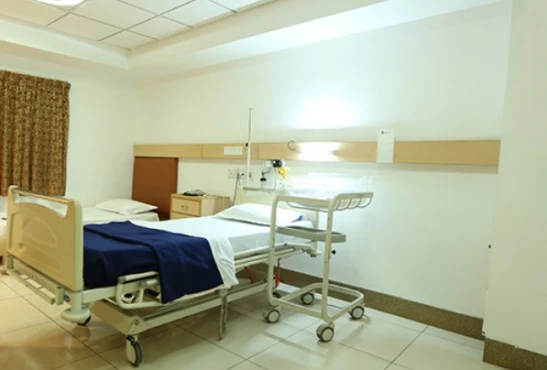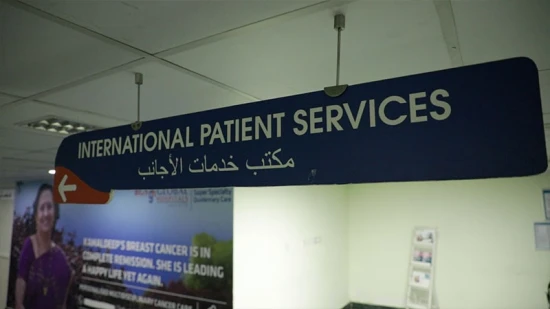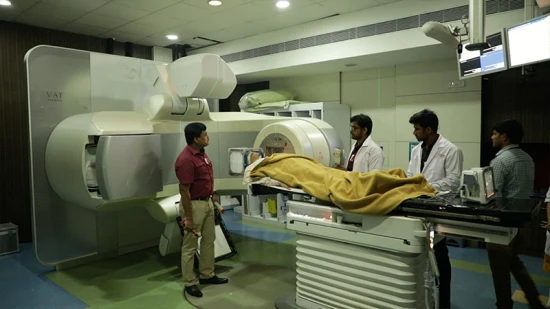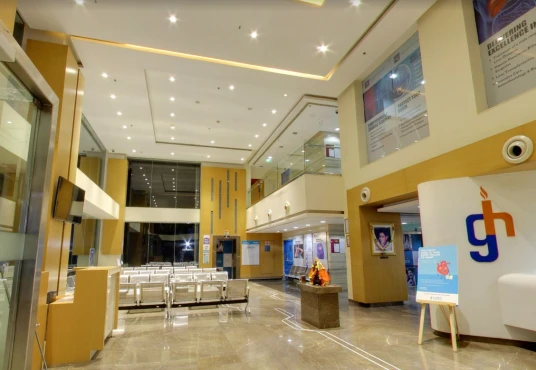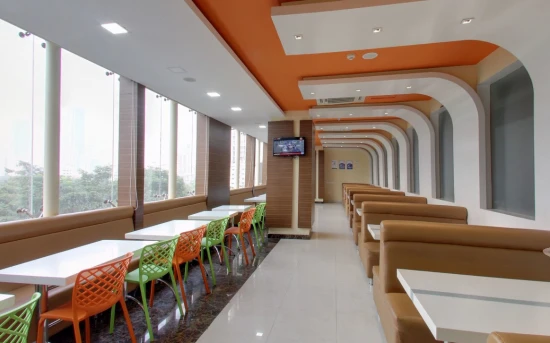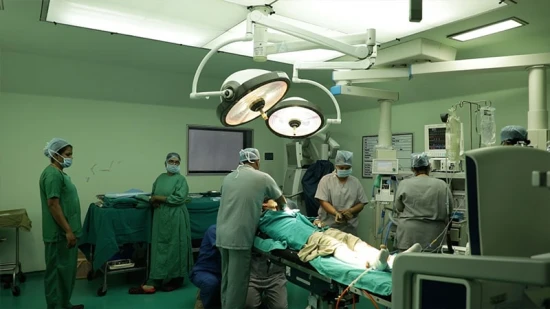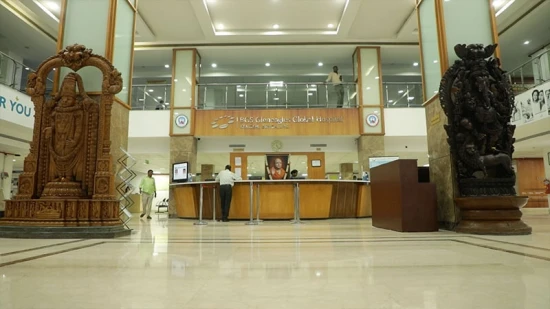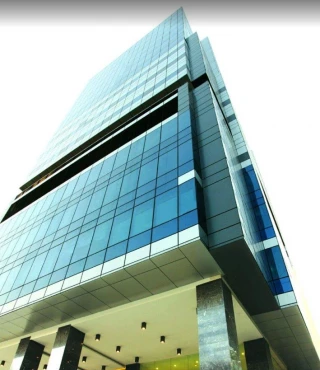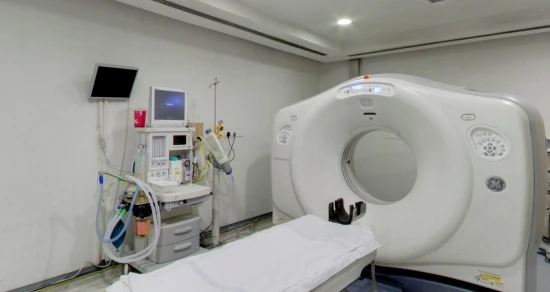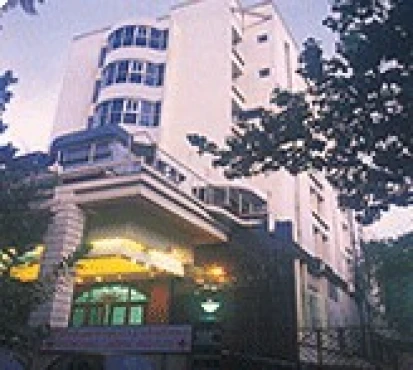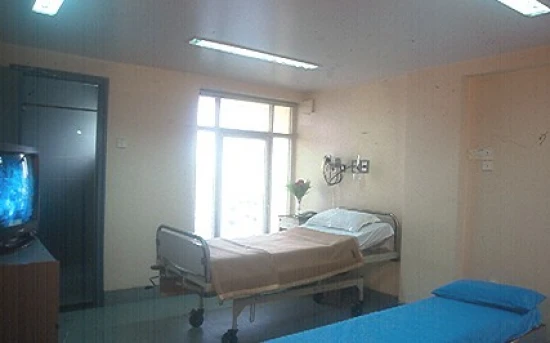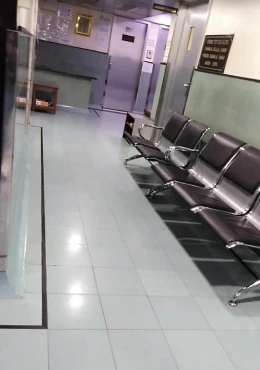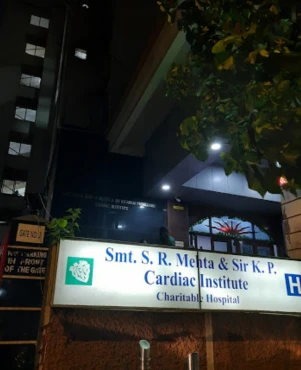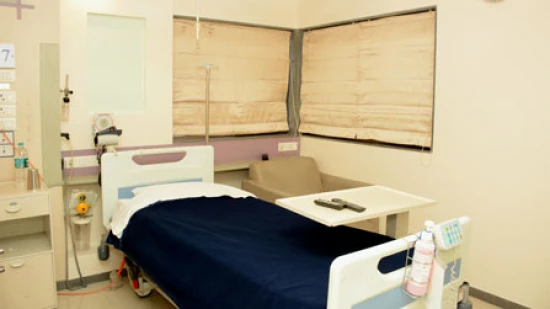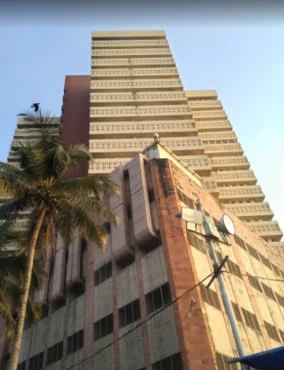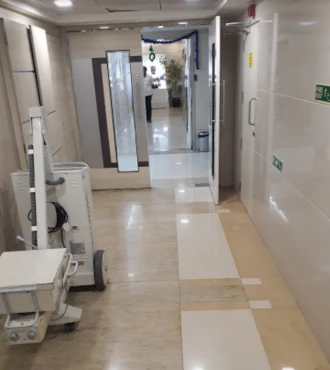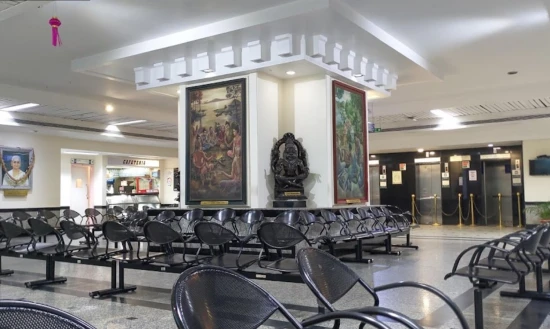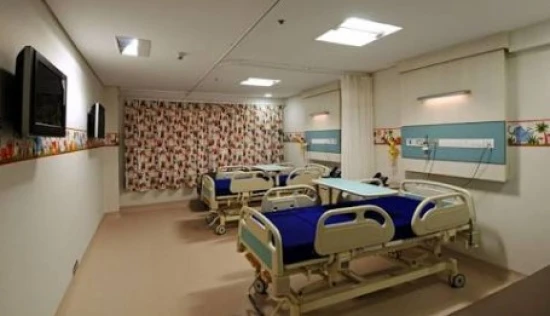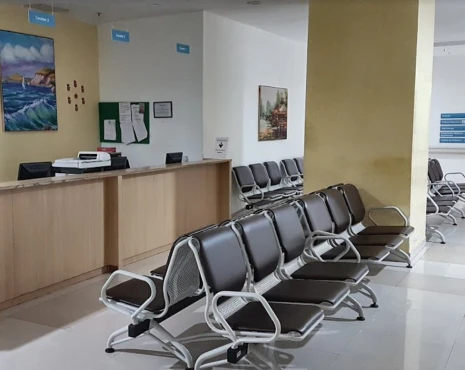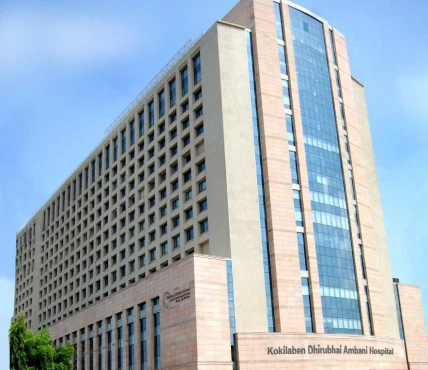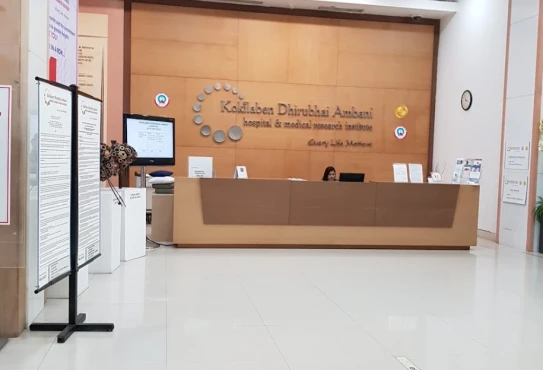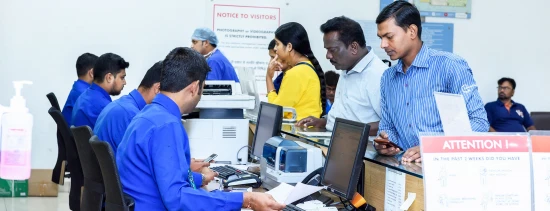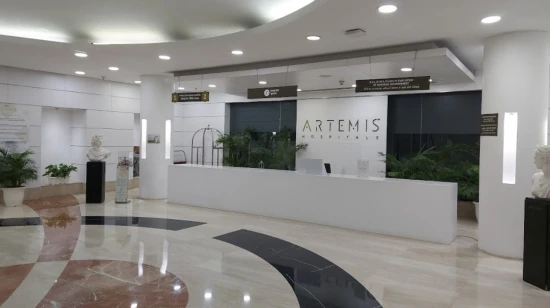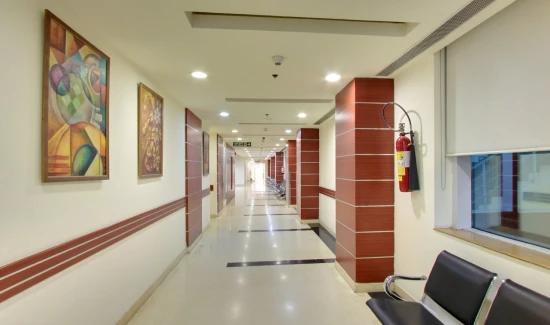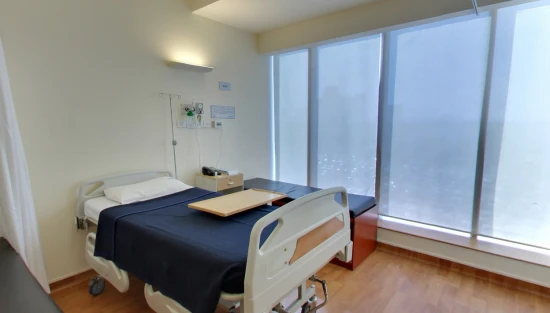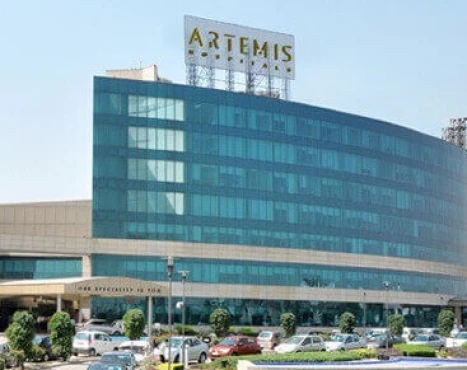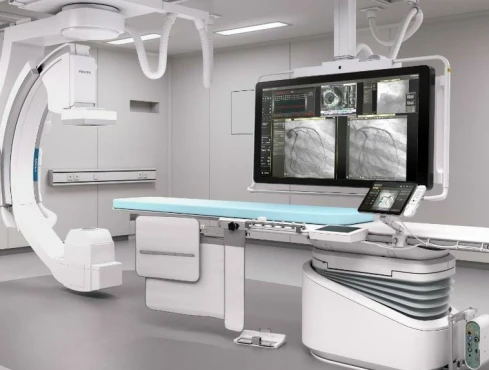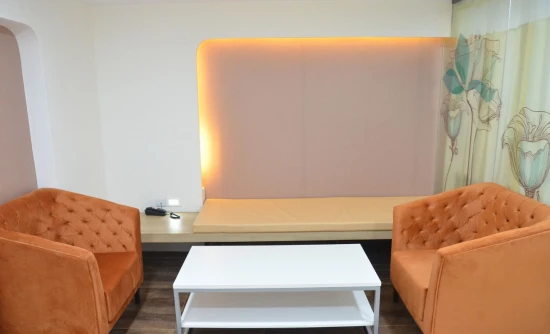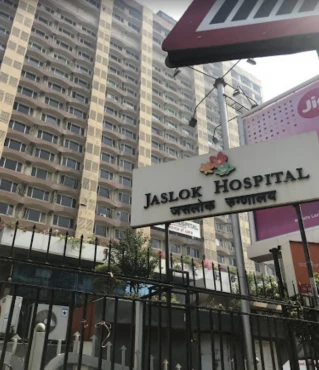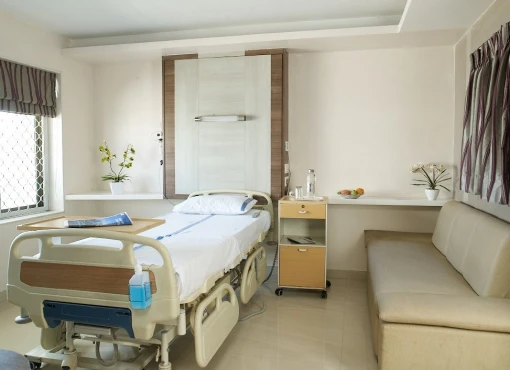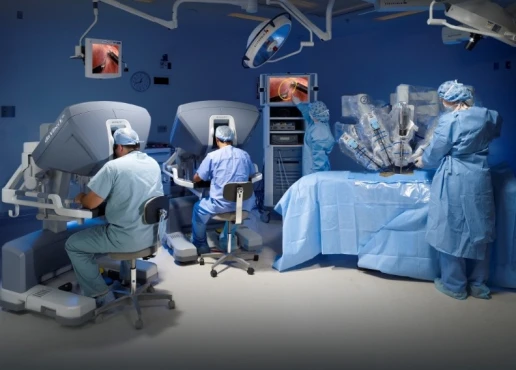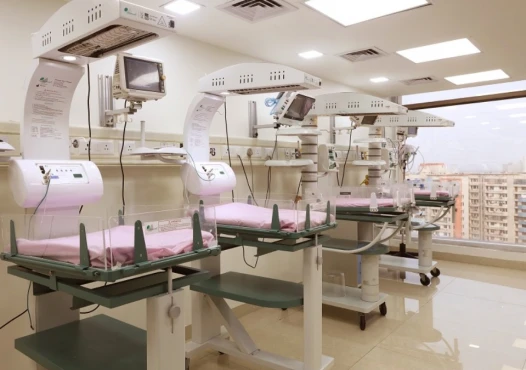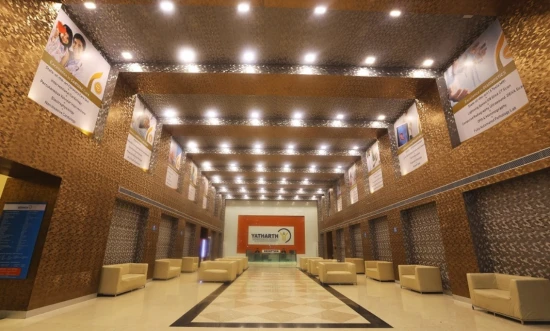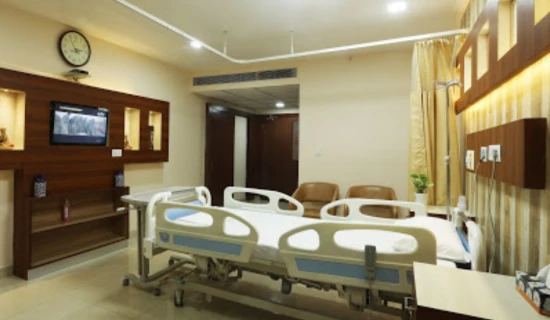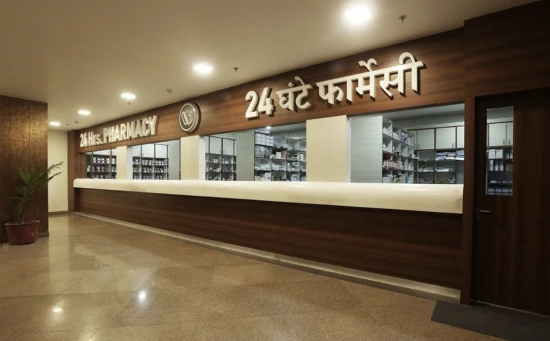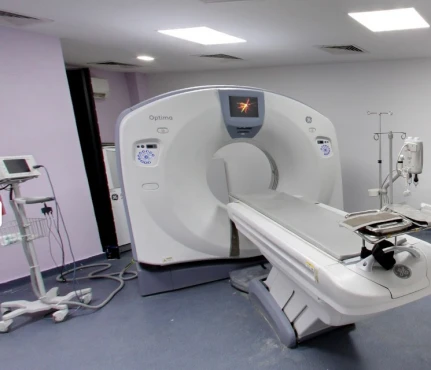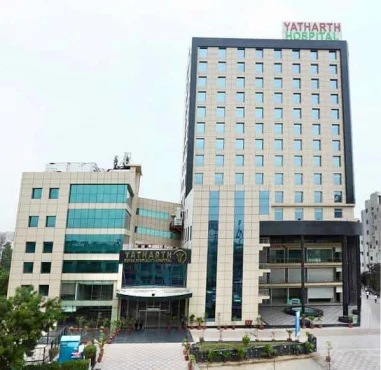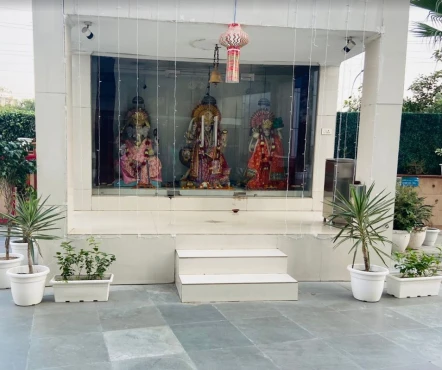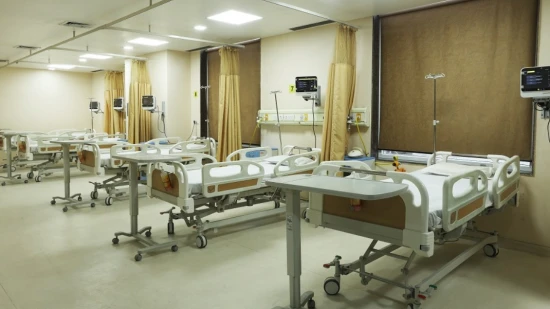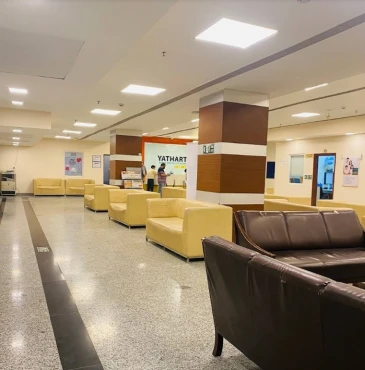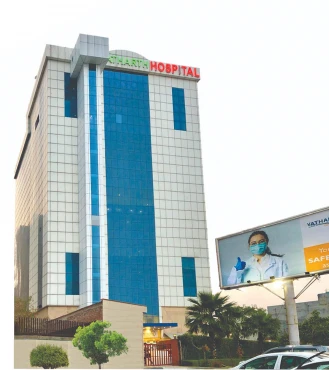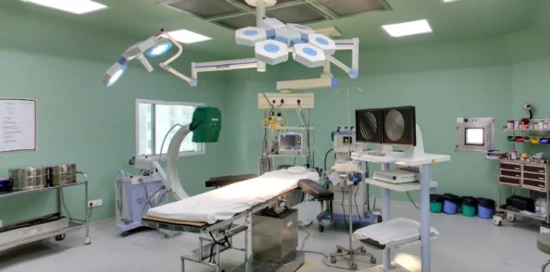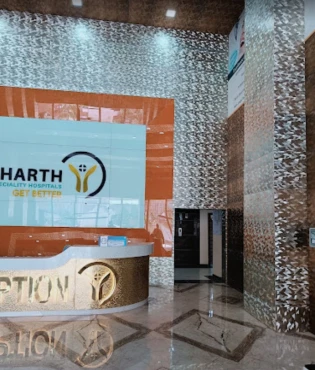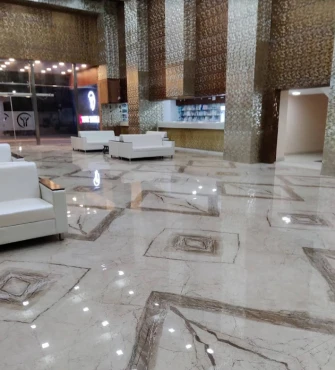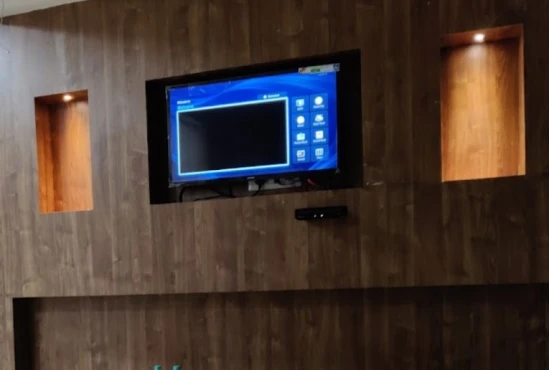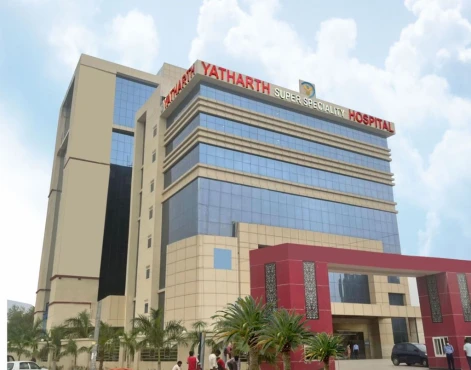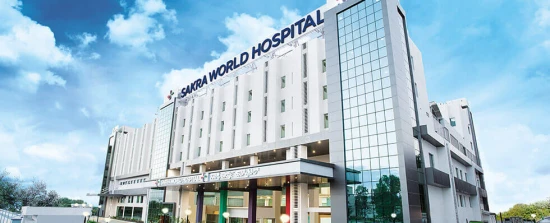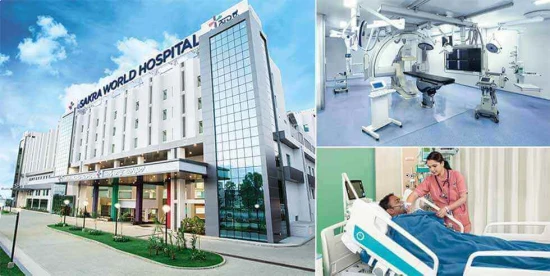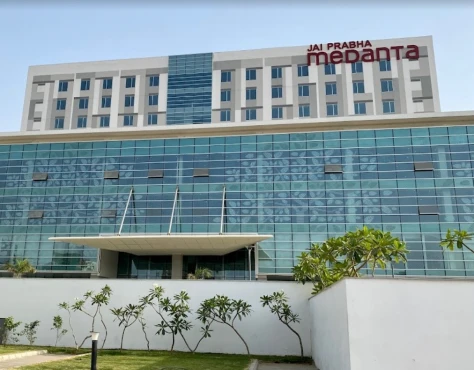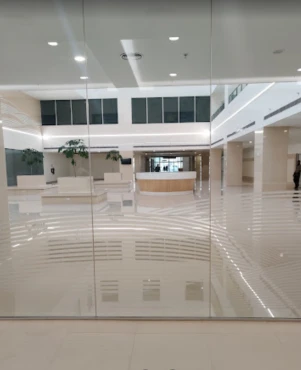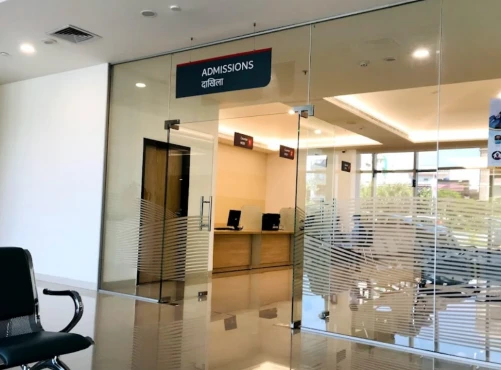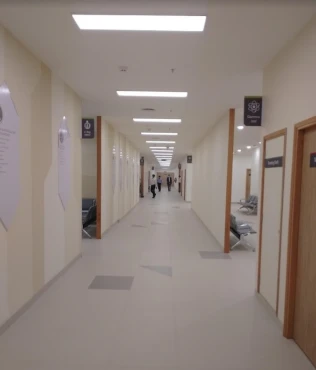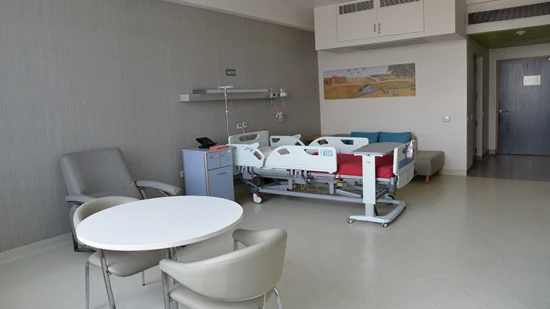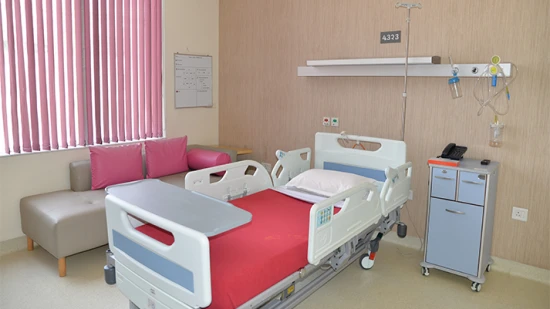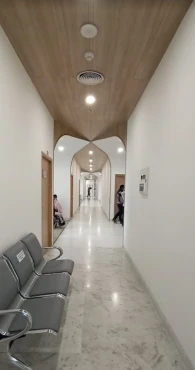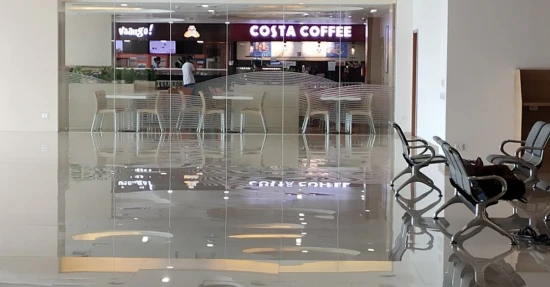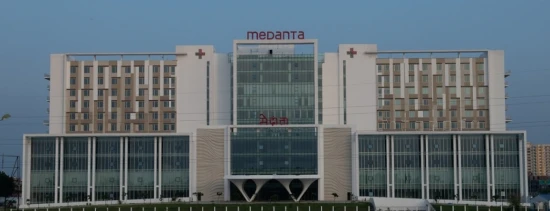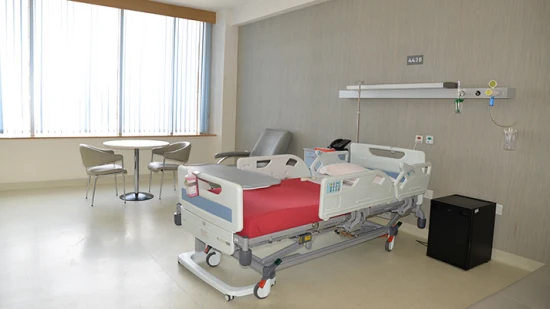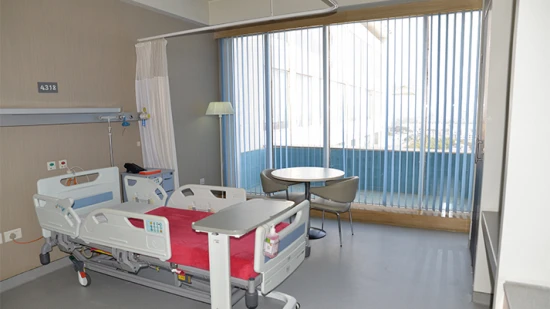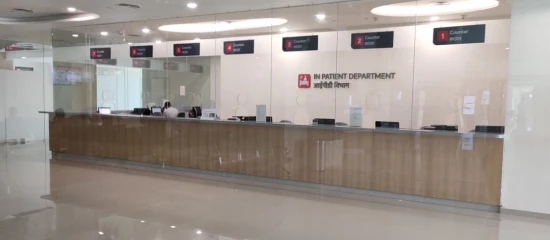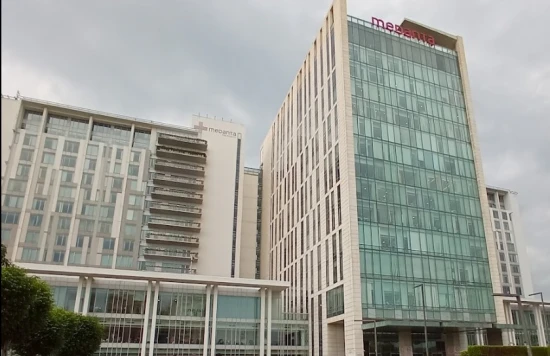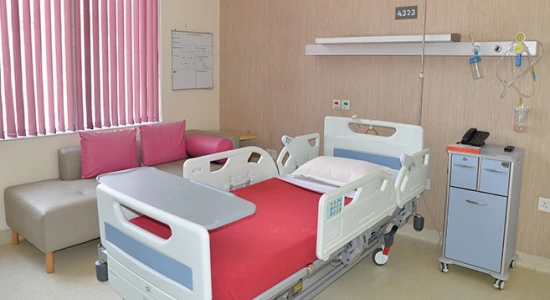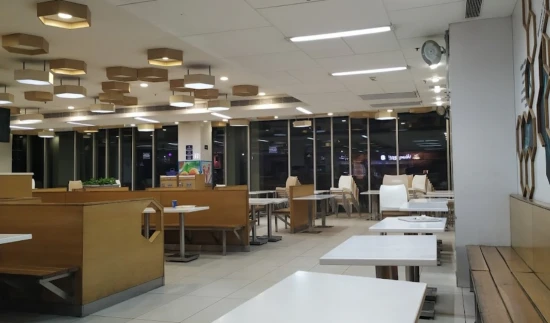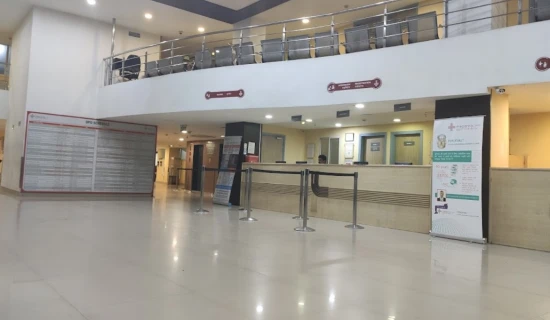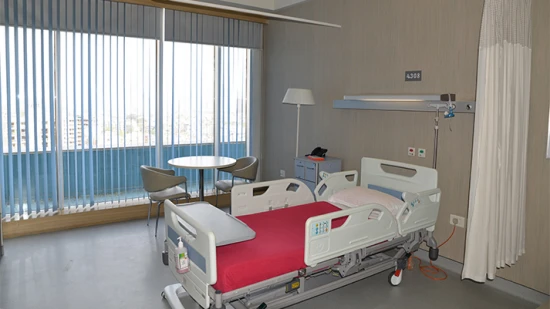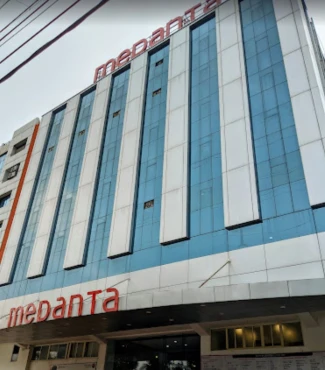Mitral valve stenosis treatment in 39 Cardiac surgery clinics in India
Top
Clinics
Ratings
Diseases
More info
Quick navigation
39 clinics specializing in Cardiac surgery providing treatment of
Mitral valve stenosis
Mitral valve stenosis is a heart condition where the mitral valve becomes narrowed, impeding blood flow from the left atrium to the left ventricle. This can lead to symptoms such as shortness of breath, fatigue, and chest pain.
Read more...
disease in India.
1
from Jayashri Nirabhawane
November 17, 2023
Recently I had to admit my mother here in an emergency. The staff is very rude and they didn’t allow me to be with mom as a primary caregiver. In fact they didn’t inform me anything about my mom’s health condition what treatment was going on etc. they treated us all as if my mom was put in a jail. There was no emergency help staff who could guide and explain us through all the protocols. We were restlessly waiting in panic until the morning to wait until doctors consult. The staff didn’t even give the basic information like her BP stats and what food she had eaten. I believe we have the right to information and doctors are supposed to give us the periodic updates on the medical conditions. They kept everything under the wraps in the name of hospital protocol which we were never informed before admission. We had to forcefully take discharge and move her to another hospital where her health improved significantly
3
from dilawar arora
September 16, 2023
Doctors of course were good, nurses n ward boys r also nice.
Main is d rooms n hospital maintenence as compared to what they are charging per patient is in absolutely pathetic condition.
I wonder in our country we never get quality as compared to what one is paying for.
4
from manisha Das
May 26, 2023
My mom was admitted to this hospital on 16th May for AVR & Ascending Aorta surgery. Surgery was successfully done by Dr. Ramakanta Panda. Best part of the hospital is Dr. Panda and the nursing staffs. The nurses took care of my mother like their own family member. Sister Sape, Pranita & Pallavi are few names that I remember. All others were equally good. Sape is missing from the photos but I will always remember her. Hoping for the best.
Prices for popular procedures:
-
Mechanical valve replacement
≈ $17,437
-
Bio-prosthetic valve replacement
≈ $12,814
-
Double valve replacement
≈ $11,657
-
Mitral valve replacement (MVR)
≈ $10,814
-
Balloon valvuloplasty
≈ $4,699
-
Percutaneous balloon mitral valvuloplasty (PBMV)
≈ $7,534
-
Open commissurotomy
≈ $2,089
-
Dual chamber pacemaker insertion
≈ $4,422
-
Coronary artery bypass graft (CABG)
≈ $7,877
4.1
5 reviews
1
from Jayashri Nirabhawane
November 17, 2023
Recently I had to admit my mother here in an emergency. The staff is very rude and they didn’t allow me to be with mom as a primary caregiver. In fact they didn’t inform me anything about my mom’s health condition what treatment was going on etc. they treated us all as if my mom was put in a jail. There was no emergency help staff who could guide and explain us through all the protocols. We were restlessly waiting in panic until the morning to wait until doctors consult. The staff didn’t even give the basic information like her BP stats and what food she had eaten. I believe we have the right to information and doctors are supposed to give us the periodic updates on the medical conditions. They kept everything under the wraps in the name of hospital protocol which we were never informed before admission. We had to forcefully take discharge and move her to another hospital where her health improved significantly
3
from dilawar arora
September 16, 2023
Doctors of course were good, nurses n ward boys r also nice.
Main is d rooms n hospital maintenence as compared to what they are charging per patient is in absolutely pathetic condition.
I wonder in our country we never get quality as compared to what one is paying for.
4
from manisha Das
May 26, 2023
My mom was admitted to this hospital on 16th May for AVR & Ascending Aorta surgery. Surgery was successfully done by Dr. Ramakanta Panda. Best part of the hospital is Dr. Panda and the nursing staffs. The nurses took care of my mother like their own family member. Sister Sape, Pranita & Pallavi are few names that I remember. All others were equally good. Sape is missing from the photos but I will always remember her. Hoping for the best.
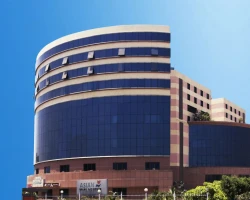
Mumbai, India
Specializations: Cardiac surgery, Vascular surgery
Asian Heart Institute (AHI), India's No. 1 Heart Care Hospital, has been set up with an aim to provide world-class cardiac care in India. In
read more
5
from Raiani Santhosh
December 02, 2023
I am devanandhana santhosh.Today i visit ENT department Dr. Sonia mam. she is very calm &quite . she is very friendly to all the patients. The service of the staff &the doctor is very good. I recommended this doctor for your family ENT medicine .You are being called as God's hands, Thank you choosing this profession. Thank You For Giving Me a good service 😊
5
from Sruthy V R
December 02, 2023
It was great experience all the staffs including Doctors, Nurses are very gentle and caring, when ever calling for help always nurses and staffs are there for helping with a smile on face. I'm leaving the hospital today in a very good mood. Everyone was very helpful and cooperative in the nursing care, housekeeping, and guest relations departments. Will undoubtedly recommend to all of my friends and family. ♥️
5
from Athira Vidhyanandan
November 30, 2023
I have good experience in ENT department. Recurring ear infection was my concern for many months. By Dr Sonia's treatment, I got great relief. Thank you doctor and all staff of B and B memorial hospital.
Prices for popular procedures:
-
Mechanical valve replacement
≈ $17,437
-
Bio-prosthetic valve replacement
≈ $12,814
-
Double valve replacement
≈ $11,657
-
Mitral valve replacement (MVR)
≈ $10,814
-
Balloon valvuloplasty
≈ $4,699
-
Percutaneous balloon mitral valvuloplasty (PBMV)
≈ $7,534
-
Open commissurotomy
≈ $2,089
-
Dual chamber pacemaker insertion
≈ $4,422
-
Heart valve replacement
≈ $11,813
3.7
5 reviews
5
from Raiani Santhosh
December 02, 2023
I am devanandhana santhosh.Today i visit ENT department Dr. Sonia mam. she is very calm &quite . she is very friendly to all the patients. The service of the staff &the doctor is very good. I recommended this doctor for your family ENT medicine .You are being called as God's hands, Thank you choosing this profession. Thank You For Giving Me a good service 😊
5
from Sruthy V R
December 02, 2023
It was great experience all the staffs including Doctors, Nurses are very gentle and caring, when ever calling for help always nurses and staffs are there for helping with a smile on face. I'm leaving the hospital today in a very good mood. Everyone was very helpful and cooperative in the nursing care, housekeeping, and guest relations departments. Will undoubtedly recommend to all of my friends and family. ♥️
5
from Athira Vidhyanandan
November 30, 2023
I have good experience in ENT department. Recurring ear infection was my concern for many months. By Dr Sonia's treatment, I got great relief. Thank you doctor and all staff of B and B memorial hospital.
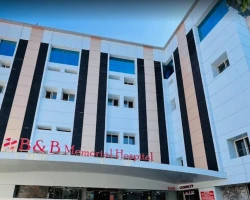
Cochin, India
Specializations: Cardiac surgery, Vascular surgery, Thoracic surgery, Neurosurgery, Orthopedic surgery, Oncology
At B&B Memorial Hospital, we are a team of medics and paramedics who provide not only avant garde specialised care in various specialities and super
read more
1
from ATREYI BHATTACHARJEE
November 29, 2023
"Nasty" hospital is what my experience says about this hell in our city. It's a nightmare filled with unpleasant and aggressive behaviour with both patients as well as their family members. The staff has no sense of politeness or social well being and unfortunately they shouldn't have been in this field of serving people. They charge more and care less. If you don't believe my words then please go pay a visit and you'll understand what I'm trying to say.
2
from Sunandita Das
November 18, 2023
My father was a patient of Dr Santosh Kumar, who has gone through double knee replacement operation under him. Please note that he personally does not do any operation, does not come to floor or talk to patient. He is just there to recommend patients for knee surgery and then his team does all of the activities on behalf of him. We did not see him or talked to him during the whole admission time. He does not come to floor even. His team was only did the OT. After OT, only the sisters informed us that OT is done and handed over the empty packets of knee transplants.(no interaction with doctor). Even during surgery follow ups, only his junoir doctor saw him.
The hospital itself could have been organized in better way. The beds are used are of old days, same lifts are used for patients and visitors which make you wait for long even if you want to go just 1 floor (no stairs). And remember only veg food is provided to the patients.
But the staffs and sisters watching over my father were helpful and never showed any attitude. Wish it is same with all the members of the hospital.
5
from subham chowdhury
October 30, 2023
"A heartfelt thank you to Dr. Anirban Neogi for being the guiding force behind my father's miraculous recovery from a road accident with multiple challenges—let multiple ribs fractures, fracture in left clavicle + left scapula, left sided haemopneomothorax + left lung trauma, AAST grade 4 splenic trauma, Haemoperitoneum + AAST grade 1 liver injury etc... .A team of doctors has been reffered Dr. A Bhattacharyaa(Radiologist), Dr. N Deb(Orthopedic), Dr. S Ghosh(Surgeon), Dr. M. K. Mahata(Neurologist), Dr. M Mitra (Anaesthetist) exhibited unparalleled expertise, skill, and unwavering dedication throughout the treatment. Their ability to navigate such complex injuries with precision and compassion is nothing short of remarkable. Our family is immensely grateful for Dr. Anirban Neogi and all reffered Doctor's for life-saving intervention and the exceptional care provided. A true heroes in the medical field. Thank you doesn't seem enough!"
Prices for popular procedures:
-
Mechanical valve replacement
≈ $17,437
-
Bio-prosthetic valve replacement
≈ $12,814
-
Double valve replacement
$3,411 - $7,240
-
Mitral valve replacement (MVR)
$3,690 - $7,519
-
Balloon valvuloplasty
$627 - $1,267
-
Percutaneous balloon mitral valvuloplasty (PBMV)
≈ $7,534
-
Open commissurotomy
$975 - $1,671
-
Dual chamber pacemaker insertion
≈ $4,422
-
Implantable cardioverter-defibrillator implantation (ICD)
$877 - $1,532
3.5
5 reviews
1
from ATREYI BHATTACHARJEE
November 29, 2023
"Nasty" hospital is what my experience says about this hell in our city. It's a nightmare filled with unpleasant and aggressive behaviour with both patients as well as their family members. The staff has no sense of politeness or social well being and unfortunately they shouldn't have been in this field of serving people. They charge more and care less. If you don't believe my words then please go pay a visit and you'll understand what I'm trying to say.
2
from Sunandita Das
November 18, 2023
My father was a patient of Dr Santosh Kumar, who has gone through double knee replacement operation under him. Please note that he personally does not do any operation, does not come to floor or talk to patient. He is just there to recommend patients for knee surgery and then his team does all of the activities on behalf of him. We did not see him or talked to him during the whole admission time. He does not come to floor even. His team was only did the OT. After OT, only the sisters informed us that OT is done and handed over the empty packets of knee transplants.(no interaction with doctor). Even during surgery follow ups, only his junoir doctor saw him.
The hospital itself could have been organized in better way. The beds are used are of old days, same lifts are used for patients and visitors which make you wait for long even if you want to go just 1 floor (no stairs). And remember only veg food is provided to the patients.
But the staffs and sisters watching over my father were helpful and never showed any attitude. Wish it is same with all the members of the hospital.
5
from subham chowdhury
October 30, 2023
"A heartfelt thank you to Dr. Anirban Neogi for being the guiding force behind my father's miraculous recovery from a road accident with multiple challenges—let multiple ribs fractures, fracture in left clavicle + left scapula, left sided haemopneomothorax + left lung trauma, AAST grade 4 splenic trauma, Haemoperitoneum + AAST grade 1 liver injury etc... .A team of doctors has been reffered Dr. A Bhattacharyaa(Radiologist), Dr. N Deb(Orthopedic), Dr. S Ghosh(Surgeon), Dr. M. K. Mahata(Neurologist), Dr. M Mitra (Anaesthetist) exhibited unparalleled expertise, skill, and unwavering dedication throughout the treatment. Their ability to navigate such complex injuries with precision and compassion is nothing short of remarkable. Our family is immensely grateful for Dr. Anirban Neogi and all reffered Doctor's for life-saving intervention and the exceptional care provided. A true heroes in the medical field. Thank you doesn't seem enough!"
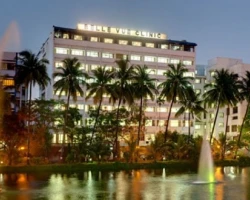
Kolkata, India
Specializations: Cardiac surgery, Vascular surgery, Thoracic surgery, Neurosurgery, Orthopedic surgery, Oncology
Kolkata’s premier medical care institution which has established a name for excellence across the country, Belle Vue Clinic was a dream come true for its
read more
5
from Seema Mehra
October 23, 2023
The Signature hospital is well connected and easy to access, making it a great option for those seeking quality healthcare.
Overall treatment is good. The services were good and the staff and doctors were excellent in all ways. Everything was good. Very good treatment and the doctors are very friendly.
I would definitely recommend this hospital to family and friends!
5
from Prashant Yadav
September 20, 2023
In this hospital where I had my appendicitis operation provided excellent care. The medical staff was attentive and professional throughout my stay. The surgery went smoothly, and the recovery process was well-managed. I felt confident in their expertise, making a stressful situation more manageable. Overall, a top-notch healthcare experience...!✌🏻😄
5
from pawan singh dafouti
August 26, 2023
I recently had an exceptional experience at Signature Advanced Specialty Hospital. From the moment I walked in, the staff was incredibly welcoming and attentive. The doctors displayed a high level of expertise and took the time to thoroughly explain the treatment plan, putting me at ease. The hospital's state-of-the-art facilities and advanced technology were impressive. I also appreciated the cleanliness and organization throughout the hospital.
Prices for popular procedures:
-
Mechanical valve replacement
≈ $17,437
-
Bio-prosthetic valve replacement
≈ $12,814
-
Double valve replacement
≈ $11,657
-
Mitral valve replacement (MVR)
≈ $10,814
-
Coronary artery bypass graft (CABG)
≈ $7,877
-
Heart valve replacement
≈ $11,813
-
Heart valve repair
≈ $13,997
-
Aortic valve replacement (AVR)
≈ $8,600
-
Transcatheter aortic valve replacement (TAVR)
≈ $27,320
4.7
5 reviews
5
from Seema Mehra
October 23, 2023
The Signature hospital is well connected and easy to access, making it a great option for those seeking quality healthcare.
Overall treatment is good. The services were good and the staff and doctors were excellent in all ways. Everything was good. Very good treatment and the doctors are very friendly.
I would definitely recommend this hospital to family and friends!
5
from Prashant Yadav
September 20, 2023
In this hospital where I had my appendicitis operation provided excellent care. The medical staff was attentive and professional throughout my stay. The surgery went smoothly, and the recovery process was well-managed. I felt confident in their expertise, making a stressful situation more manageable. Overall, a top-notch healthcare experience...!✌🏻😄
5
from pawan singh dafouti
August 26, 2023
I recently had an exceptional experience at Signature Advanced Specialty Hospital. From the moment I walked in, the staff was incredibly welcoming and attentive. The doctors displayed a high level of expertise and took the time to thoroughly explain the treatment plan, putting me at ease. The hospital's state-of-the-art facilities and advanced technology were impressive. I also appreciated the cleanliness and organization throughout the hospital.

Gurgaon, India
Specializations: Cardiac surgery, Vascular surgery, Neurosurgery, Spine surgery, Orthopedic surgery, Oncology
Languages: English, Hindi
“With 40 years of experience, the Best is the threshold from where we up our ante in expertise and technology, when it comes to healthcare
read more
5
from Anil Keshkar
December 08, 2023
Everything was perfect The doctors and staff are very caring, efficient and handle everything with great deal of understanding and patience. There is no time wasted or any waiting during any off the procedures. Highly recommend this top hospital and their doctors, thanks Dr. Arneja .
5
from Rajendra Mehra
November 06, 2023
Better than any other hospitals i can think of. Admission and treatment is very good . staff is good. They will take good care of your patient . they take great and immediate care of the patient .
Special thanks Dr Arneja sir
5
from ashish zunjipelli
October 27, 2023
"I recently had the excellent experience of having my father undergo bypass surgery at Arneja hospital. I can't praise the hospital staff enough for their friendliness and cooperation. They took care of everything exceptionally well, and all the services provided were spot on. Any doubts or concerns we had were promptly addressed. I highly recommend this hospital for the exceptional care and support they offer."
Prices for popular procedures:
-
Mechanical valve replacement
≈ $17,437
-
Bio-prosthetic valve replacement
≈ $12,814
-
Double valve replacement
≈ $11,657
-
Mitral valve replacement (MVR)
≈ $10,814
-
Balloon valvuloplasty
≈ $4,699
-
Percutaneous balloon mitral valvuloplasty (PBMV)
≈ $7,534
-
Open commissurotomy
≈ $2,089
-
Dual chamber pacemaker insertion
≈ $4,422
-
Heart valve replacement
≈ $11,813
4.8
5 reviews
5
from Anil Keshkar
December 08, 2023
Everything was perfect The doctors and staff are very caring, efficient and handle everything with great deal of understanding and patience. There is no time wasted or any waiting during any off the procedures. Highly recommend this top hospital and their doctors, thanks Dr. Arneja .
5
from Rajendra Mehra
November 06, 2023
Better than any other hospitals i can think of. Admission and treatment is very good . staff is good. They will take good care of your patient . they take great and immediate care of the patient .
Special thanks Dr Arneja sir
5
from ashish zunjipelli
October 27, 2023
"I recently had the excellent experience of having my father undergo bypass surgery at Arneja hospital. I can't praise the hospital staff enough for their friendliness and cooperation. They took care of everything exceptionally well, and all the services provided were spot on. Any doubts or concerns we had were promptly addressed. I highly recommend this hospital for the exceptional care and support they offer."
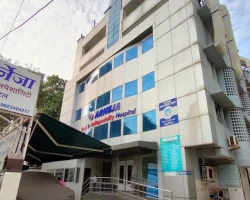
Nagpur, India
Specializations: Cardiac surgery, Vascular surgery, Thoracic surgery, Neurosurgery, Spine surgery, Orthopedic surgery, Oncology
Arneja Heart & Multi-Speciality Hospital has been established with an aim to provide world-class cardiac care in central India. It is the largest and the
read more
5
from Sonia Kuwelkar
November 30, 2023
Highly skilled and professional doctors and staff . They are very approachable. Hospital premises are well maintained. Seamless internal procedures help to avoid delays. The insurance department and billing section is very helpful in expediting the process . Would like to make a special mention of Samad Shaikh from insurance department for excellent service making the billing process hassle free for us.
5
from Hrishikesh Naik
November 30, 2023
The experience was truly excellent. The doctors and nurses were incredibly supportive, and the facilities were top-notch. I must give special recognition to Samad and insurance team, who made the claim process and document submission incredibly smooth for me.
5
from Devaki Shinkre
November 22, 2023
We had heard mixed reviews about this hospital before we went there but we have only had positive experience every time we have visited the hospital.
Manipal hospital is the best place for treating cancer in Goa. We have received excellent treatment right from the surgery to the chemotherapy. The doctors, nurses, the support staff- all of them are polite, helpful, courteous and very professional. The hospital premises are so clean and maintained well.
Prices for popular procedures:
-
Mechanical valve replacement
≈ $17,437
-
Bio-prosthetic valve replacement
≈ $12,814
-
Double valve replacement
≈ $11,657
-
Mitral valve replacement (MVR)
≈ $10,814
-
Balloon valvuloplasty
≈ $4,699
-
Percutaneous balloon mitral valvuloplasty (PBMV)
≈ $7,534
-
Open commissurotomy
≈ $2,089
-
Dual chamber pacemaker insertion
≈ $4,422
-
Coronary artery bypass graft (CABG)
≈ $7,877
4.5
5 reviews
5
from Sonia Kuwelkar
November 30, 2023
Highly skilled and professional doctors and staff . They are very approachable. Hospital premises are well maintained. Seamless internal procedures help to avoid delays. The insurance department and billing section is very helpful in expediting the process . Would like to make a special mention of Samad Shaikh from insurance department for excellent service making the billing process hassle free for us.
5
from Hrishikesh Naik
November 30, 2023
The experience was truly excellent. The doctors and nurses were incredibly supportive, and the facilities were top-notch. I must give special recognition to Samad and insurance team, who made the claim process and document submission incredibly smooth for me.
5
from Devaki Shinkre
November 22, 2023
We had heard mixed reviews about this hospital before we went there but we have only had positive experience every time we have visited the hospital.
Manipal hospital is the best place for treating cancer in Goa. We have received excellent treatment right from the surgery to the chemotherapy. The doctors, nurses, the support staff- all of them are polite, helpful, courteous and very professional. The hospital premises are so clean and maintained well.
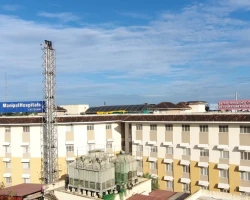
Panaji, India
Specializations: Cardiac surgery, Vascular surgery, Thoracic surgery, Neurosurgery, Spine surgery, Orthopedic surgery, Oncology
Manipal Hospital Goa is a unit of the renowned Manipal health enterprises that is known for quality and patient care. Manipal Hospital Goa is a
read more
5
from Kalyan Patil4444
December 08, 2023
My family is exceedingly satisfied with the professionalism and commitment to excellent nursing care received from Global Hospital. The medical services received by my mother during her stay in your hospital were exceptional. She felt at home throughout the whole recovery process. Your hard work does not go unnoticed. We are extremely pleased with the top-notch care provided by your team....
Thank you very much to the entire team of Global Hospital 🙏🏻
5
from Priyanka Deshmukh
December 01, 2023
Dr Shirish Hastak and his team has been a big blessing for our family.. he has not just diagnosed my dad's condition correctly but also gave the right advise for his unique medical issues like low CSF syndrome, cerebellum stroke syndrome, etc and I am glad my dad is well and healthy under his guidance. He has been a true blessing every time we have approached him. Thank you Dr Shirish Hastak for always standing behind and helping us sail through the difficult times. Thanks to Global Hospital staff for helping and making our stay comfortable in this trying times.
-Priyanka Deshmukh on behalf of Dr Subhash Deshmukh
5
from Vijay Shinde
September 12, 2023
Doctor Jignesh Gandhi of Global Hospital is the best surgeon. He performed my surgery very well. Also his assistant doctor Alpana cooperated very well. Nurse Archana and Nurse Siddhi at Global Hospital took great care of me. All the staff at Global Hospital cooperated well. Global Hospital is the best hospital for me.
A very clean and well maintained hospital I must say. I had periodical medical examination there. The staff is very polite and friendly.
Prices for popular procedures:
-
Mechanical valve replacement
≈ $17,437
-
Bio-prosthetic valve replacement
≈ $12,814
-
Double valve replacement
≈ $11,657
-
Mitral valve replacement (MVR)
≈ $10,814
-
Dual chamber pacemaker insertion
≈ $4,422
-
Coronary artery bypass graft (CABG)
≈ $7,877
-
Heart valve replacement
≈ $11,813
-
Heart valve repair
≈ $13,997
-
Aortic valve replacement (AVR)
≈ $8,600
4.8
5 reviews
5
from Kalyan Patil4444
December 08, 2023
My family is exceedingly satisfied with the professionalism and commitment to excellent nursing care received from Global Hospital. The medical services received by my mother during her stay in your hospital were exceptional. She felt at home throughout the whole recovery process. Your hard work does not go unnoticed. We are extremely pleased with the top-notch care provided by your team....
Thank you very much to the entire team of Global Hospital 🙏🏻
5
from Priyanka Deshmukh
December 01, 2023
Dr Shirish Hastak and his team has been a big blessing for our family.. he has not just diagnosed my dad's condition correctly but also gave the right advise for his unique medical issues like low CSF syndrome, cerebellum stroke syndrome, etc and I am glad my dad is well and healthy under his guidance. He has been a true blessing every time we have approached him. Thank you Dr Shirish Hastak for always standing behind and helping us sail through the difficult times. Thanks to Global Hospital staff for helping and making our stay comfortable in this trying times.
-Priyanka Deshmukh on behalf of Dr Subhash Deshmukh
5
from Vijay Shinde
September 12, 2023
Doctor Jignesh Gandhi of Global Hospital is the best surgeon. He performed my surgery very well. Also his assistant doctor Alpana cooperated very well. Nurse Archana and Nurse Siddhi at Global Hospital took great care of me. All the staff at Global Hospital cooperated well. Global Hospital is the best hospital for me.
A very clean and well maintained hospital I must say. I had periodical medical examination there. The staff is very polite and friendly.
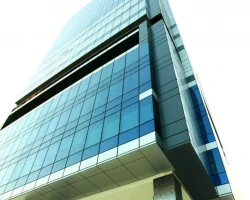
Mumbai, India
Specializations: Cardiac surgery, Vascular surgery, Thoracic surgery, Orthopedic surgery
Languages: Arabic, English, Japanese
Global Hospital at Lower Parel, Mumbai is Western India’s most renowned multi-organ transplant centre. The hospital is equally renowned for its clinical work in Hepatobiliary
read more
5
from samik makwana
December 08, 2023
Good Hospital, If any Emergency then come to this Hospital. Dr. Jagdish Parikh Dr. Chirag Parikh and Dr. Nabar are really very good doctors staff also supportive to patients and visitors.
1
from nikita sigtia
December 06, 2023
The hospital is good but some staff as usual are very insensitive specially sonography department and the staff.
My father on wheel chair he had sonography appointment but bcas of some issues i needed male staff .. the sister denied saying untill u admit we can't give male attendant. Than I request her to keep my rest files with her and I'll go inside the sonography room with my father she denied for that either. Than they said we will nt give you sonography report on the spot I said it's urgent as he needs to be operated rudely the Dr says ' Humko aur bhi kaam hai and patient hai, hum sirf aapke liye nahi baithe hai' so mine is a scheduled appointment and I was before time n you very well known that how many area the sonography has to be performed and I'm paying for that. So you should have given the rest appointments accordingly. So now next day that too after requesting they said to come and collect at 11 am as I had Dr appointment but than also it was not ready and they said it will take time so I had to scream and get the work done all this after they knew how emergency it was.
Now as my father was on wheel chair so when we reach the hospital gate their some car was inside the premises and we had to stop the car at gate n take him inside so the nurse came to drag the chair but while going the cab driver was very old so he couldn't take inside I told the same nurse let's pull the wheelchair outside. Now conveniently she denied giving the reason ' Hospital wheel chair are nt allowed to cross the hospital gate' like really I saw with a straight face n told her wat happened when we arrived bcas ur hospital car was there than the rule change. She behaved deaf hear but I told I'll complain she was affaired than. Even the male attendant was sitting and not wanting to help.
Seriously sonography dept and staff needs to be better this gives Hospital a negative remark but hospital is really good !
3
from Alpesh Mestry
June 06, 2023
Can get very good treatment for Heart related problems. Good specialist doctors are available in the hospital. Hospital Near to Kings circle railway stations from walkable distance.
Prices for popular procedures:
-
Balloon valvuloplasty
≈ $4,699
-
Percutaneous balloon mitral valvuloplasty (PBMV)
≈ $7,534
-
Open commissurotomy
≈ $2,089
-
Dual chamber pacemaker insertion
≈ $4,422
-
Coronary artery bypass graft (CABG)
≈ $7,877
-
Off-pump coronary artery bypass surgery
≈ $5,625
-
Permanent pacemaker implantation
≈ $6,230
-
Radiofrequency ablation (RFA)
≈ $11,294
-
Cardiac catheterization
≈ $1,884
4.1
5 reviews
5
from samik makwana
December 08, 2023
Good Hospital, If any Emergency then come to this Hospital. Dr. Jagdish Parikh Dr. Chirag Parikh and Dr. Nabar are really very good doctors staff also supportive to patients and visitors.
1
from nikita sigtia
December 06, 2023
The hospital is good but some staff as usual are very insensitive specially sonography department and the staff.
My father on wheel chair he had sonography appointment but bcas of some issues i needed male staff .. the sister denied saying untill u admit we can't give male attendant. Than I request her to keep my rest files with her and I'll go inside the sonography room with my father she denied for that either. Than they said we will nt give you sonography report on the spot I said it's urgent as he needs to be operated rudely the Dr says ' Humko aur bhi kaam hai and patient hai, hum sirf aapke liye nahi baithe hai' so mine is a scheduled appointment and I was before time n you very well known that how many area the sonography has to be performed and I'm paying for that. So you should have given the rest appointments accordingly. So now next day that too after requesting they said to come and collect at 11 am as I had Dr appointment but than also it was not ready and they said it will take time so I had to scream and get the work done all this after they knew how emergency it was.
Now as my father was on wheel chair so when we reach the hospital gate their some car was inside the premises and we had to stop the car at gate n take him inside so the nurse came to drag the chair but while going the cab driver was very old so he couldn't take inside I told the same nurse let's pull the wheelchair outside. Now conveniently she denied giving the reason ' Hospital wheel chair are nt allowed to cross the hospital gate' like really I saw with a straight face n told her wat happened when we arrived bcas ur hospital car was there than the rule change. She behaved deaf hear but I told I'll complain she was affaired than. Even the male attendant was sitting and not wanting to help.
Seriously sonography dept and staff needs to be better this gives Hospital a negative remark but hospital is really good !
3
from Alpesh Mestry
June 06, 2023
Can get very good treatment for Heart related problems. Good specialist doctors are available in the hospital. Hospital Near to Kings circle railway stations from walkable distance.
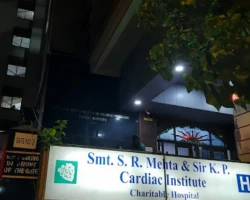
Mumbai, India
Specializations: Cardiac surgery, Vascular surgery, Thoracic surgery, Neurosurgery, Spine surgery, Orthopedic surgery
Smt. S.R. Mehta & Sir K. P. Cardiac Institute is committed to provide a world class, safe, quality healthcare in cardiology, constantly at affordable rates
read more
2
from Rashmi Kotak
December 02, 2023
Yesterday I had been there for eye check up.they did the check up but kept the file with them what rights do they have to keep my file with them?? They said aapko chahiye medical records se Xerox le lo rubbish services from 9.30 am to 1 at noon I was there there was. One test they did without even asking me that test should have been done if I opt for cataract surgery there.
4
from Deepak Maheshwari
November 06, 2023
Had a comprehensive health checkup done with which I was satisfied.
There seems to be little sanctity of time given for appointments in the OPD. I was given appointments at 3.45 and 4.30, whereas I could see the concerned doctors only at 4.45 and 6.30, respectively.
I’m not sure if anybody should get an MRI done here. The Hospital’s MRI report was rejected by their own doctor on account of being ‘incomplete’.
5
from Harish Bhinde
October 25, 2023
Undoubtedly one of the best hospitals in Mumbai. Well qualified and experienced Doctors. Prompt & Efficient service by Nurses and Mousis. Centrally located. Am writing this based on my more than 45 years with the hospital. Wish and hope they can do something about parking of vehicles, specially for seniors. Best wishes.
Prices for popular procedures:
-
Mechanical valve replacement
≈ $17,437
-
Bio-prosthetic valve replacement
≈ $12,814
-
Double valve replacement
≈ $11,657
-
Mitral valve replacement (MVR)
≈ $10,814
-
Balloon valvuloplasty
≈ $4,699
-
Percutaneous balloon mitral valvuloplasty (PBMV)
≈ $7,534
-
Open commissurotomy
≈ $2,089
-
Dual chamber pacemaker insertion
≈ $4,422
-
Coronary artery bypass graft (CABG)
≈ $7,877
4.0
5 reviews
2
from Rashmi Kotak
December 02, 2023
Yesterday I had been there for eye check up.they did the check up but kept the file with them what rights do they have to keep my file with them?? They said aapko chahiye medical records se Xerox le lo rubbish services from 9.30 am to 1 at noon I was there there was. One test they did without even asking me that test should have been done if I opt for cataract surgery there.
4
from Deepak Maheshwari
November 06, 2023
Had a comprehensive health checkup done with which I was satisfied.
There seems to be little sanctity of time given for appointments in the OPD. I was given appointments at 3.45 and 4.30, whereas I could see the concerned doctors only at 4.45 and 6.30, respectively.
I’m not sure if anybody should get an MRI done here. The Hospital’s MRI report was rejected by their own doctor on account of being ‘incomplete’.
5
from Harish Bhinde
October 25, 2023
Undoubtedly one of the best hospitals in Mumbai. Well qualified and experienced Doctors. Prompt & Efficient service by Nurses and Mousis. Centrally located. Am writing this based on my more than 45 years with the hospital. Wish and hope they can do something about parking of vehicles, specially for seniors. Best wishes.
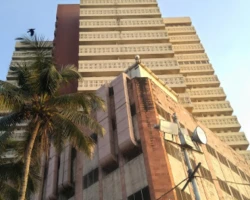
Mumbai, India
Specializations: Cardiac surgery, Vascular surgery, Thoracic surgery, Neurosurgery, Spine surgery, Orthopedic surgery, Oncology
Established in the early 1950's under the leadership of the late Shri P.D. Hinduja, our vision is to deliver quality healthcare. As an ultramodern tertiary
read more
1
from Jiger Patel
November 21, 2023
I recently had an unfortunate experience at Kokilaben Dhirubhai Ambani Hospital that compelled me to share my thoughts. My father-in-law was admitted for an emergency procedure, and what transpired during our visit left me deeply disheartened.
Initially, we were given an estimate of ₹2,09,000 plus consumables for the procedure, but upon discharge, the cost had escalated to ₹3,57,000 - a staggering 75% increase. Seeking clarification at the billing desk, I received vague answers and was directed to the assistant doctor of the surgeon, who then asked us to wait for Dr. Mandar Deshpande.
After a prolonged wait, Dr. Mandar Deshpande eventually met with us but became defensive when questioned about the unexpected cost surge. Despite my attempts to engage in a civil conversation, things turned unpleasant as Dr. Deshpande raised his voice and directed us back to the billing department. We would not believe a doctor could behave in such a manner.
The situation escalated further when security was called, and my wife and I were confined to a room with the promise that someone from billing would explain the invoices. To our dismay, we were still waiting for someone to come for over 45 minutes, prompting us to consider leaving.
Later, Rajashesh Savant, the senior security personnel, decided to come but immediately resorted to using foul language and even attempted to file a false FIR against us. He threatened us with a silly claim that I had kidnapped my father-in-law so that we would not pay the bill. We asked him to check the cameras that a nurse had released him, and second to think if our intention was not to pay the bill (and run away), then why would we go to the billing counter to ask for the bill to pay? Why would we just not run away without paying? I explained to him the reason my father-in-law had left a little early was because he was in pain after the surgery and he had to travel six hours to get back home, so we stayed back so that he could leave to get back home before it was too dark. When logic did not prevail, he asked his security guards to physically restriction us and attempt to seize our belongings. When tried to take pictures and videos the guard literally tried to snatch my phone by inserting his hands into my pocket. How can a medical institution employ goons like these?
Ultimately, exhausted and under duress, we decided to settle the bill after intervention from a senior police officer. The entire incident unfolded in the hospital lobby, possibly captured on video.
This experience has raised several concerns about the conduct of the hospital staff and the apparent lack of accountability. Seeing such behavior from a healthcare institution where open communication and understanding should be paramount is disheartening.
Questions arise about the hospital's choice of personnel, particularly those who cannot engage in polite conversations and provide explanations when required. The ordeal also raises questions about the conduct of security personnel.
Last but not least, observe the cleanliness when you are in the hospital. It is one the worst; besides the lobby, the wards and especially the bathrooms are not to the cleanliness standard of a medical institution.
I hope to shed light on the challenges faced during my visit to Kokilaben Dhirubhai Ambani Hospital, emphasizing the need for better communication and a more patient-friendly approach from the medical and administrative staff. There are better hospitals in Mumbai, and you should consider those before considering Kokilaben Dhirubhai Ambani Hospital.
2
from Ritu Puri
November 21, 2023
Hospital clean and good staff but bathrooms cleaning not done. No one taking care.. it's always stinking ,no tissue papers or toilet rolls..no housekeeping supervisor around to whom we can show the dirty washroom on ground floor...the bathroom cleaner was forced to clean but she was using one cloth to wipe seat covers which can be a serious breeding ground for infection and a dirty mop which could never dry floor..no Dettol or sanitizer in or around washroom .. dirty smell all over ..wash basins equally stained and dirty and wet on the counter...we request management to immediately take action to improve condition of such a gifted hospital ...there was no suggestion box found so posting.
It's a request for all the washrooms conditions to be improved for patients relatives.
4
from Anurag Jain (PakhaleTheAnurag)
October 22, 2023
Kokilaben Dhirubhai Ambani Hospital 🏥 is one of the best hospitals 🏥 in Mumbai and in India 🇮🇳 . Excellent infrastructure. Hospital is very clean. I've had my executive health check up over there. And I've got good experience at the hospital 🏥. Every department is marked with systematic colorful lines which you have to follow on the floor so as to commute inside hospital. No need to ask anyone unless you have colorblindness 😉. Reception staff at EHC are very helpful and cooperative. I've gone for routine medical check up. Doctors are knowledgeable. The most important thing I like about kokilaben hospital that they sends all the reports thru mail. No hassle or waiting for the hard copy of the reports. And food 🍲 is really good. You won't feel like you are eating hospital 🏥 food 🍲.
Prices for popular procedures:
-
Mechanical valve replacement
≈ $17,437
-
Bio-prosthetic valve replacement
≈ $12,814
-
Double valve replacement
≈ $11,657
-
Mitral valve replacement (MVR)
≈ $10,814
-
Balloon valvuloplasty
≈ $4,699
-
Percutaneous balloon mitral valvuloplasty (PBMV)
≈ $7,534
-
Open commissurotomy
≈ $2,089
-
Dual chamber pacemaker insertion
≈ $4,422
-
Coronary artery bypass graft (CABG)
≈ $7,877
3.3
5 reviews
1
from Jiger Patel
November 21, 2023
I recently had an unfortunate experience at Kokilaben Dhirubhai Ambani Hospital that compelled me to share my thoughts. My father-in-law was admitted for an emergency procedure, and what transpired during our visit left me deeply disheartened.
Initially, we were given an estimate of ₹2,09,000 plus consumables for the procedure, but upon discharge, the cost had escalated to ₹3,57,000 - a staggering 75% increase. Seeking clarification at the billing desk, I received vague answers and was directed to the assistant doctor of the surgeon, who then asked us to wait for Dr. Mandar Deshpande.
After a prolonged wait, Dr. Mandar Deshpande eventually met with us but became defensive when questioned about the unexpected cost surge. Despite my attempts to engage in a civil conversation, things turned unpleasant as Dr. Deshpande raised his voice and directed us back to the billing department. We would not believe a doctor could behave in such a manner.
The situation escalated further when security was called, and my wife and I were confined to a room with the promise that someone from billing would explain the invoices. To our dismay, we were still waiting for someone to come for over 45 minutes, prompting us to consider leaving.
Later, Rajashesh Savant, the senior security personnel, decided to come but immediately resorted to using foul language and even attempted to file a false FIR against us. He threatened us with a silly claim that I had kidnapped my father-in-law so that we would not pay the bill. We asked him to check the cameras that a nurse had released him, and second to think if our intention was not to pay the bill (and run away), then why would we go to the billing counter to ask for the bill to pay? Why would we just not run away without paying? I explained to him the reason my father-in-law had left a little early was because he was in pain after the surgery and he had to travel six hours to get back home, so we stayed back so that he could leave to get back home before it was too dark. When logic did not prevail, he asked his security guards to physically restriction us and attempt to seize our belongings. When tried to take pictures and videos the guard literally tried to snatch my phone by inserting his hands into my pocket. How can a medical institution employ goons like these?
Ultimately, exhausted and under duress, we decided to settle the bill after intervention from a senior police officer. The entire incident unfolded in the hospital lobby, possibly captured on video.
This experience has raised several concerns about the conduct of the hospital staff and the apparent lack of accountability. Seeing such behavior from a healthcare institution where open communication and understanding should be paramount is disheartening.
Questions arise about the hospital's choice of personnel, particularly those who cannot engage in polite conversations and provide explanations when required. The ordeal also raises questions about the conduct of security personnel.
Last but not least, observe the cleanliness when you are in the hospital. It is one the worst; besides the lobby, the wards and especially the bathrooms are not to the cleanliness standard of a medical institution.
I hope to shed light on the challenges faced during my visit to Kokilaben Dhirubhai Ambani Hospital, emphasizing the need for better communication and a more patient-friendly approach from the medical and administrative staff. There are better hospitals in Mumbai, and you should consider those before considering Kokilaben Dhirubhai Ambani Hospital.
2
from Ritu Puri
November 21, 2023
Hospital clean and good staff but bathrooms cleaning not done. No one taking care.. it's always stinking ,no tissue papers or toilet rolls..no housekeeping supervisor around to whom we can show the dirty washroom on ground floor...the bathroom cleaner was forced to clean but she was using one cloth to wipe seat covers which can be a serious breeding ground for infection and a dirty mop which could never dry floor..no Dettol or sanitizer in or around washroom .. dirty smell all over ..wash basins equally stained and dirty and wet on the counter...we request management to immediately take action to improve condition of such a gifted hospital ...there was no suggestion box found so posting.
It's a request for all the washrooms conditions to be improved for patients relatives.
4
from Anurag Jain (PakhaleTheAnurag)
October 22, 2023
Kokilaben Dhirubhai Ambani Hospital 🏥 is one of the best hospitals 🏥 in Mumbai and in India 🇮🇳 . Excellent infrastructure. Hospital is very clean. I've had my executive health check up over there. And I've got good experience at the hospital 🏥. Every department is marked with systematic colorful lines which you have to follow on the floor so as to commute inside hospital. No need to ask anyone unless you have colorblindness 😉. Reception staff at EHC are very helpful and cooperative. I've gone for routine medical check up. Doctors are knowledgeable. The most important thing I like about kokilaben hospital that they sends all the reports thru mail. No hassle or waiting for the hard copy of the reports. And food 🍲 is really good. You won't feel like you are eating hospital 🏥 food 🍲.
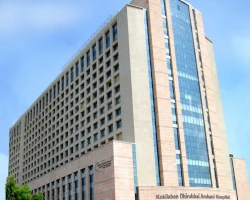
Mumbai, India
Specializations: Cardiac surgery, Vascular surgery, Thoracic surgery, Neurosurgery, Spine surgery, Orthopedic surgery, Oncology
Languages: Arabic, English, French, Hindi, Russian, Urdu
Kokilaben Dhirubhai Ambani Hospital & Medical Research Institute is India’s one of the most advanced tertiary care facilities. As the flagship social initiative of the
read more
5
from Harish Sachdeva
December 02, 2023
Artemis such a great hospital with the good staff , doctors, surgeons and have the best management . The behaviour of the doctors and staff is very well to the patient. I want to say thanks to the OBS and Gynae Dr Renu Sehgal and Team Dr. Nidhi Dr. Anshika and also specially thanks to DR. Varun for treatment of my wife Pinki Sachdeva on 5th Sep 2023. She was stresses and worried as all other doctors said it will be very serious surgery Finally had a consultation with Dr Renu and her team, and it was amazing experience the way she explained each and everything to my wife after which we were so confident. Special thanks to Coordinator Dr Geeta for taking care of all the admission and tpa related process. Entire process from surgery to recovery was very smooth and all the credit goes to Dr. Renu and her team. Amazing doctor and her team. I would recommend it to everyone. We stayed in the hospital for 3 day and everyone did their job with great dedication. Thank you Dr.Renu Sehgal and other Doctors, Nursing staff, other helping stuff .
I also thanks to Dr Reshma and ICU staff for support to recover from problems,
Regards
Harish Sachdeva
3
from anju agggarwal
November 06, 2023
All doctors and staff are good. But during Echo test I feel this hospital is very big. But there is less machines for echo testing. Patients have waited minimum two hours waiting, this is not good. I am also noticed staff of Echo testing room specially female staff mostly busy in talking and busy in their mobile chatting. As this result patients have waited for more time for their turn. I want request from the management of Artmis Hospital, please check about your services and staff.
5
from Rubi Kumari
September 19, 2023
artemis such a great hospital with the good staff , doctors, surgeons and have the best management . the behaviour of the doctors and staff is very well to the patient. i want to say thanks to the nephrologist DR. VARUN MITTAL. my father's surgery ( kidney transplant) is under dr.varun mittal , dr. manju agrawal and dr.gopal.
dr. alice is a very sweet and very kind hearted doctor.
Prices for popular procedures:
-
Mechanical valve replacement
≈ $17,437
-
Bio-prosthetic valve replacement
≈ $12,814
-
Double valve replacement
≈ $11,657
-
Mitral valve replacement (MVR)
≈ $10,814
-
Balloon valvuloplasty
≈ $4,699
-
Percutaneous balloon mitral valvuloplasty (PBMV)
≈ $7,534
-
Open commissurotomy
≈ $2,089
-
Dual chamber pacemaker insertion
≈ $4,422
-
Coronary artery bypass graft (CABG)
≈ $7,877
3.4
5 reviews
5
from Harish Sachdeva
December 02, 2023
Artemis such a great hospital with the good staff , doctors, surgeons and have the best management . The behaviour of the doctors and staff is very well to the patient. I want to say thanks to the OBS and Gynae Dr Renu Sehgal and Team Dr. Nidhi Dr. Anshika and also specially thanks to DR. Varun for treatment of my wife Pinki Sachdeva on 5th Sep 2023. She was stresses and worried as all other doctors said it will be very serious surgery Finally had a consultation with Dr Renu and her team, and it was amazing experience the way she explained each and everything to my wife after which we were so confident. Special thanks to Coordinator Dr Geeta for taking care of all the admission and tpa related process. Entire process from surgery to recovery was very smooth and all the credit goes to Dr. Renu and her team. Amazing doctor and her team. I would recommend it to everyone. We stayed in the hospital for 3 day and everyone did their job with great dedication. Thank you Dr.Renu Sehgal and other Doctors, Nursing staff, other helping stuff .
I also thanks to Dr Reshma and ICU staff for support to recover from problems,
Regards
Harish Sachdeva
3
from anju agggarwal
November 06, 2023
All doctors and staff are good. But during Echo test I feel this hospital is very big. But there is less machines for echo testing. Patients have waited minimum two hours waiting, this is not good. I am also noticed staff of Echo testing room specially female staff mostly busy in talking and busy in their mobile chatting. As this result patients have waited for more time for their turn. I want request from the management of Artmis Hospital, please check about your services and staff.
5
from Rubi Kumari
September 19, 2023
artemis such a great hospital with the good staff , doctors, surgeons and have the best management . the behaviour of the doctors and staff is very well to the patient. i want to say thanks to the nephrologist DR. VARUN MITTAL. my father's surgery ( kidney transplant) is under dr.varun mittal , dr. manju agrawal and dr.gopal.
dr. alice is a very sweet and very kind hearted doctor.
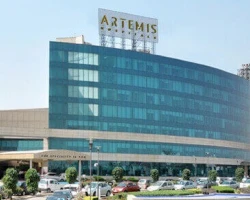
Gurgaon, India
Specializations: Cardiac surgery, Vascular surgery, Thoracic surgery, Neurosurgery, Spine surgery, Orthopedic surgery, Oncology
Languages: Arabic, English, French
Artemis Hospital, established in 2007, spread across 9 acres, is a 400 plus bed; state-of-the-art multi-speciality hospital located in Gurgaon, India. Artemis Hospital is the
read more
5
from Jyotirmoy Dutta
December 05, 2023
My experience at Jaslok was really good. I felt comfortable and always taken good care throughout my stay at Jaslok. Dr. Chibber assured me throughout the entire process , and his mild smiles always conjured me up. His team of doctors were also very knowledgeable and provided all sorts of timely assistance.
Thanks for taking good care of me.
5
from Surya Maheshwari
November 30, 2023
I wanted to express my gratitude to Dr Shailesh Raina and his team. They are truly exceptional. His expertise, compassionate care and clear communication made my experience very positive at Jaslok Hospital. Thank you for your support. Thank you for your dedication to your patients; it truly makes a difference.
Best regards,
Surya M
5
from Mayuresh Maldikar
November 30, 2023
My mother was admitted to Jaslok for a small surgery. I'm really impressed with overall ease in all the processes, starting from admission to billing and TPA insurance. Staff is very polite and helpful. We had taken Class-A single occupancy room and it was pretty good. I must mention that the food served was tasty and filling. All the doctors and nurses we interacted with, were patient and guided us with all our concerns and queries. Overall, I'm happy with the experience and thankful to the entire team for their services.
Prices for popular procedures:
-
Mechanical valve replacement
≈ $17,437
-
Bio-prosthetic valve replacement
≈ $12,814
-
Double valve replacement
≈ $11,657
-
Mitral valve replacement (MVR)
≈ $10,814
-
Balloon valvuloplasty
≈ $4,699
-
Percutaneous balloon mitral valvuloplasty (PBMV)
≈ $7,534
-
Open commissurotomy
≈ $2,089
-
Dual chamber pacemaker insertion
≈ $4,422
-
Coronary artery bypass graft (CABG)
≈ $7,877
4.8
5 reviews
5
from Jyotirmoy Dutta
December 05, 2023
My experience at Jaslok was really good. I felt comfortable and always taken good care throughout my stay at Jaslok. Dr. Chibber assured me throughout the entire process , and his mild smiles always conjured me up. His team of doctors were also very knowledgeable and provided all sorts of timely assistance.
Thanks for taking good care of me.
5
from Surya Maheshwari
November 30, 2023
I wanted to express my gratitude to Dr Shailesh Raina and his team. They are truly exceptional. His expertise, compassionate care and clear communication made my experience very positive at Jaslok Hospital. Thank you for your support. Thank you for your dedication to your patients; it truly makes a difference.
Best regards,
Surya M
5
from Mayuresh Maldikar
November 30, 2023
My mother was admitted to Jaslok for a small surgery. I'm really impressed with overall ease in all the processes, starting from admission to billing and TPA insurance. Staff is very polite and helpful. We had taken Class-A single occupancy room and it was pretty good. I must mention that the food served was tasty and filling. All the doctors and nurses we interacted with, were patient and guided us with all our concerns and queries. Overall, I'm happy with the experience and thankful to the entire team for their services.
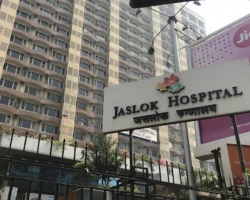
Mumbai, India
Specializations: Cardiac surgery, Vascular surgery, Thoracic surgery, Neurosurgery, Spine surgery, Orthopedic surgery, Oncology
The Jaslok Hospital & Research Centre is one of the oldest tertiary care, multi-specialty Trust hospitals in the country. In the late 60s, when the
read more
Prices for popular procedures:
-
Mechanical valve replacement
≈ $17,437
-
Bio-prosthetic valve replacement
≈ $12,814
-
Double valve replacement
≈ $11,657
-
Mitral valve replacement (MVR)
≈ $10,814
-
Balloon valvuloplasty
≈ $4,699
-
Percutaneous balloon mitral valvuloplasty (PBMV)
≈ $7,534
-
Open commissurotomy
≈ $2,089
-
Dual chamber pacemaker insertion
≈ $4,422
-
Coronary artery bypass graft (CABG)
≈ $7,877
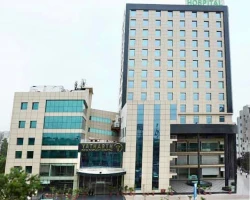
Greater Noida, India
Specializations: Cardiac surgery, Vascular surgery, Thoracic surgery, Neurosurgery, Spine surgery, Orthopedic surgery, Oncology
YATHARTH Super Speciality Hospital, Greater Noida is the finest super specialty private hospital in Greater Noida with a range of services backed by cutting edge
read more
5
from Mohan Lal
December 04, 2023
Officers and staff of Yatharth Hospital are extra ordinary. Their spirit of service to patients is in transcendent beyond. They are excellent in nature and behaviour. May God bless them all.
1
from Pankaj Kumar
August 21, 2023
Very bad experience today , waiting time for gynaecologist almost 1:30 H:M , pregnant women had to wait for more than 90 min .
Doctors timing should be informed at billing counter if not available.
5
from Hemant Kumar Dubey
June 10, 2023
Yesterday, I have visited there for an angiography test of my father in heart department. Honestly saying this is very good hospital with full of amenities and services. The most valuable thing is that all staff's behaviour is good and smooth. Doctors, nurses and other supporting staffs are behaving betterly and are giving their 100 percent to the patient. Patient attenders are also getting good services here like canteen, waiting sofa and sleeping area. I want to thank Yatharth Hospital and team for making such a wonderful staff management. Cost is high but services are satisfactory.
Prices for popular procedures:
-
Mechanical valve replacement
≈ $17,437
-
Bio-prosthetic valve replacement
≈ $12,814
-
Double valve replacement
≈ $11,657
-
Mitral valve replacement (MVR)
≈ $10,814
-
Balloon valvuloplasty
≈ $4,699
-
Percutaneous balloon mitral valvuloplasty (PBMV)
≈ $7,534
-
Open commissurotomy
≈ $2,089
-
Dual chamber pacemaker insertion
≈ $4,422
-
Coronary artery bypass graft (CABG)
≈ $7,877
4.5
5 reviews
5
from Mohan Lal
December 04, 2023
Officers and staff of Yatharth Hospital are extra ordinary. Their spirit of service to patients is in transcendent beyond. They are excellent in nature and behaviour. May God bless them all.
1
from Pankaj Kumar
August 21, 2023
Very bad experience today , waiting time for gynaecologist almost 1:30 H:M , pregnant women had to wait for more than 90 min .
Doctors timing should be informed at billing counter if not available.
5
from Hemant Kumar Dubey
June 10, 2023
Yesterday, I have visited there for an angiography test of my father in heart department. Honestly saying this is very good hospital with full of amenities and services. The most valuable thing is that all staff's behaviour is good and smooth. Doctors, nurses and other supporting staffs are behaving betterly and are giving their 100 percent to the patient. Patient attenders are also getting good services here like canteen, waiting sofa and sleeping area. I want to thank Yatharth Hospital and team for making such a wonderful staff management. Cost is high but services are satisfactory.
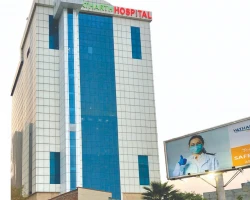
Noida, India
Specializations: Cardiac surgery, Vascular surgery, Thoracic surgery, Neurosurgery, Spine surgery, Orthopedic surgery, Oncology
Yatharth Super Specaility Hospital, Noida is a 300 bed NABH certified multispeciality tertiary care hospital. It is a manifestation of Yatharth’s vision of providing a
read more
5
from Raza Khan
October 29, 2023
Had great experience at yatharth during our child delivery... Special thanks to my doctor Dr Mamta jha...
She is the one the best and experienced doctor in greater noida.
We had super smooth process for everything..
Nursing staff and hospital management is super flexible and supportive.
I recommend yatharth for all to be parent.. and if you really want healthy mother and baby pls consult Dr Mamta jha 🙂
4
from Tarun K.
October 28, 2023
Located in sector 1 Greater Noida West. My mother was admitted here for Endoscopic and Gall bladder surgery.
Dr. Amogh and Kushal were like a God figure for us as treatment went well and my mother is recovering well by God grace.
Further also wanted to comment on the rooms and services. Supporting staff/nurses like Kiran, Oindrilla was amazing . Their services and support I would highly recommend. Keep it up
The food was healthy and hygienic as well.
Rooms were comfortable with all necessary things available which help the attendant to stay comfortable too.
4
from abhisaxena 1411
October 28, 2023
Very good doctors and support staffs. They have done tremendous job. 1st day experience was bad due to emergency staffs unavailability and rudeness(when we complaint about their unavailability). They were busy in personal calls and gossips( but security guards of emergency ward was very supportive and helpful) but after admitting the patient everything was good. Doctors are very experienced and generous. Support staffs are very helpful and provided good support. Billing department is also very helpful in providing information and discharge was very smooth. I will give 4.5 out of 5(-0.5 due to 1st day experience).
Prices for popular procedures:
-
Mechanical valve replacement
≈ $17,437
-
Bio-prosthetic valve replacement
≈ $12,814
-
Double valve replacement
≈ $11,657
-
Mitral valve replacement (MVR)
≈ $10,814
-
Balloon valvuloplasty
≈ $4,699
-
Percutaneous balloon mitral valvuloplasty (PBMV)
≈ $7,534
-
Open commissurotomy
≈ $2,089
-
Dual chamber pacemaker insertion
≈ $4,422
-
Coronary artery bypass graft (CABG)
≈ $7,877
4.2
5 reviews
5
from Raza Khan
October 29, 2023
Had great experience at yatharth during our child delivery... Special thanks to my doctor Dr Mamta jha...
She is the one the best and experienced doctor in greater noida.
We had super smooth process for everything..
Nursing staff and hospital management is super flexible and supportive.
I recommend yatharth for all to be parent.. and if you really want healthy mother and baby pls consult Dr Mamta jha 🙂
4
from Tarun K.
October 28, 2023
Located in sector 1 Greater Noida West. My mother was admitted here for Endoscopic and Gall bladder surgery.
Dr. Amogh and Kushal were like a God figure for us as treatment went well and my mother is recovering well by God grace.
Further also wanted to comment on the rooms and services. Supporting staff/nurses like Kiran, Oindrilla was amazing . Their services and support I would highly recommend. Keep it up
The food was healthy and hygienic as well.
Rooms were comfortable with all necessary things available which help the attendant to stay comfortable too.
4
from abhisaxena 1411
October 28, 2023
Very good doctors and support staffs. They have done tremendous job. 1st day experience was bad due to emergency staffs unavailability and rudeness(when we complaint about their unavailability). They were busy in personal calls and gossips( but security guards of emergency ward was very supportive and helpful) but after admitting the patient everything was good. Doctors are very experienced and generous. Support staffs are very helpful and provided good support. Billing department is also very helpful in providing information and discharge was very smooth. I will give 4.5 out of 5(-0.5 due to 1st day experience).
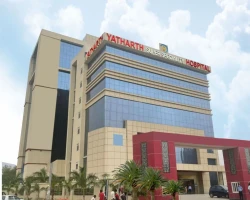
Noida, India
Specializations: Cardiac surgery, Vascular surgery, Thoracic surgery, Neurosurgery, Spine surgery, Orthopedic surgery, Oncology
Yatharth Super Specaility Hospital, Greater Noida West is a 500 bedded quaternary care hospital in Noida extension. Set on a spacious campus, the hospital has
read more
5
from Priyanshu Saxena
December 07, 2023
I got treated for fracture in my hands here about 4 months back. For my left hand, the doctor suggested surgery. The whole process was quite smooth and I would definitely recommend this hospital for overall treatment. Special mention to Dr. Banarji, who was extremely patient and helpful. Apart from being a great doctor, he is a great human being and kept motivating me through the course of treatment.
The whole staff of the hospital is amazing as well. They take good care of patients and the attendents are available throughout the night. Riya was extremely helpful throughout the whole process and was quite proactive in helping me with the insurance reimbursement, scheduling the appointments and providing me with all the necessary documents whenever I needed them. She makes sure that she is transparent with the appointment timings, which helps the patients to not wait in long queues.
I had a great experience in this hospital, and can’t thank them enough to ensure my good recovery and making me feel normal again!
5
from Amitabh Agrawal
December 07, 2023
Excellent services and counselling. Regular visits by consultants and other medical team members. 24 hours support in the ward. Not a single call bell press was ignored or delayed. Very courteous and caring nursing team. Very good house keeping services. Cleaning 2-3 times in a day. Food service well in time as per nutritionist recommendation. Every day visit by nutritionist. Excellent infrastructure and hospital administration. Given the level and quality of services, charges are reasonable.
5
from Sakthi Balasubramani
September 15, 2023
I had the privilege of consulting Dr. Satish Rudrappa, a Neurologist, for my family member, and I want to express my heartfelt appreciation for the exceptional care we received during our visit. Our consultation left us thoroughly satisfied.
I would like to give a special shoutout to Mr. Rishi, Ms. Anu, and Ms. Emie for their outstanding support and assistance throughout our visit. Their dedication and kindness truly made a difference.
Prices for popular procedures:
-
Mechanical valve replacement
≈ $17,437
-
Bio-prosthetic valve replacement
≈ $12,814
-
Double valve replacement
≈ $11,657
-
Mitral valve replacement (MVR)
≈ $10,814
-
Dual chamber pacemaker insertion
≈ $4,422
-
Coronary artery bypass graft (CABG)
≈ $7,877
-
Heart valve replacement
≈ $11,813
-
Heart valve repair
≈ $13,997
-
Aortic valve replacement (AVR)
≈ $8,600
3.9
5 reviews
5
from Priyanshu Saxena
December 07, 2023
I got treated for fracture in my hands here about 4 months back. For my left hand, the doctor suggested surgery. The whole process was quite smooth and I would definitely recommend this hospital for overall treatment. Special mention to Dr. Banarji, who was extremely patient and helpful. Apart from being a great doctor, he is a great human being and kept motivating me through the course of treatment.
The whole staff of the hospital is amazing as well. They take good care of patients and the attendents are available throughout the night. Riya was extremely helpful throughout the whole process and was quite proactive in helping me with the insurance reimbursement, scheduling the appointments and providing me with all the necessary documents whenever I needed them. She makes sure that she is transparent with the appointment timings, which helps the patients to not wait in long queues.
I had a great experience in this hospital, and can’t thank them enough to ensure my good recovery and making me feel normal again!
5
from Amitabh Agrawal
December 07, 2023
Excellent services and counselling. Regular visits by consultants and other medical team members. 24 hours support in the ward. Not a single call bell press was ignored or delayed. Very courteous and caring nursing team. Very good house keeping services. Cleaning 2-3 times in a day. Food service well in time as per nutritionist recommendation. Every day visit by nutritionist. Excellent infrastructure and hospital administration. Given the level and quality of services, charges are reasonable.
5
from Sakthi Balasubramani
September 15, 2023
I had the privilege of consulting Dr. Satish Rudrappa, a Neurologist, for my family member, and I want to express my heartfelt appreciation for the exceptional care we received during our visit. Our consultation left us thoroughly satisfied.
I would like to give a special shoutout to Mr. Rishi, Ms. Anu, and Ms. Emie for their outstanding support and assistance throughout our visit. Their dedication and kindness truly made a difference.
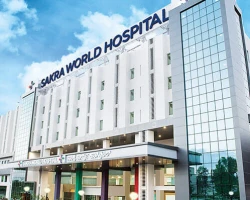
Bengaluru, India
Specializations: Cardiac surgery, Vascular surgery, Thoracic surgery, Neurosurgery, Spine surgery, Orthopedic surgery, Oncology
Sakra World Hospital is the best Multispecialty hospital in Bangalore. With over 200+ doctors with expertise across the healthcare sector, Sakra World Hospital has existed
read more
1
from Raj K
November 14, 2023
More of the show but less in quality
Visited for CT Angio and had worst experience. I was told that will be done within an hour. However after three long hours the test is delayed.
The staff members are careless and can't project the estimation time. on asking/followed up i was being told that you can drop a note at suggestion counter.
Fed up of hearing the generalised excuses.
PATHETIC EXPERIENCE 👎🏽
5
from Arun Prabhakar (Prabhu)
November 12, 2023
Good maintained hospital. But can tell about doctor’s because every doctor’s has his own capabilities. I visited this hospital for treatment for a near relative so I am not aware about costing. Overall this is good hospital in Bihar.
4
from Atul kumar Sinha
August 28, 2023
Very big hospital for Bihar. Systematic and well organised. It is like a big mall with cafeteria on the ground floor. Security system is unnecessarily very tight. Only one attendant is allowed at a time.
Prices for popular procedures:
-
Mechanical valve replacement
≈ $17,437
-
Bio-prosthetic valve replacement
≈ $12,814
-
Double valve replacement
≈ $11,657
-
Mitral valve replacement (MVR)
≈ $10,814
-
Dual chamber pacemaker insertion
≈ $4,422
-
Coronary artery bypass graft (CABG)
≈ $7,877
-
Heart valve replacement
≈ $11,813
-
Heart valve repair
≈ $13,997
-
Aortic valve replacement (AVR)
≈ $8,600
3.5
5 reviews
1
from Raj K
November 14, 2023
More of the show but less in quality
Visited for CT Angio and had worst experience. I was told that will be done within an hour. However after three long hours the test is delayed.
The staff members are careless and can't project the estimation time. on asking/followed up i was being told that you can drop a note at suggestion counter.
Fed up of hearing the generalised excuses.
PATHETIC EXPERIENCE 👎🏽
5
from Arun Prabhakar (Prabhu)
November 12, 2023
Good maintained hospital. But can tell about doctor’s because every doctor’s has his own capabilities. I visited this hospital for treatment for a near relative so I am not aware about costing. Overall this is good hospital in Bihar.
4
from Atul kumar Sinha
August 28, 2023
Very big hospital for Bihar. Systematic and well organised. It is like a big mall with cafeteria on the ground floor. Security system is unnecessarily very tight. Only one attendant is allowed at a time.
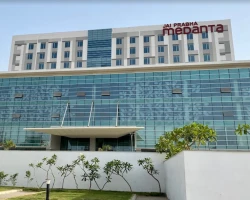
Patna, India
Specializations: Cardiac surgery, Vascular surgery, Thoracic surgery, Neurosurgery, Spine surgery, Orthopedic surgery, Oncology
Jay Prabha Medanta offers the highest quality healthcare delivered by best-in-class doctors committed to providing care with compassion. An ecosystem of excellence, Jay Prabha Medanta,
read more
5
from Bindu Yadav
October 25, 2023
1st time gye hai medanta hospital for my husband's kidney transplant , cordinator se baat hui hai ,kidney cordinator is a very polite person, and Dr. Shubham is also good they guide me what can they do for transplant process and also what budget for this process. Hospital are very neat and clean ....abhi is hospital ke bare me itna hi bata sakte hai
5
from Ayush Maurya
September 05, 2023
Medanta hospital is one of the best private hospitals in Lucknow.🏥
The medical facilities are very good and the staff are very supportive.👨⚕️👩⚕️
Parking facility🚘🚖 is also available .
4
from Singh Satya (SARकार)
August 11, 2023
Medanta hospital is one of the best private hospitals in Lucknow.
Bed costs are high but the facilities they are providing are amazing, even it beats Apollo hospital in cleanliness and space and in price too.
The hospital has costa coffee shop and other food shops, the food is very hygienic and it's freshly prepared.
Remember it's not cheap tho it's best.
Everything was nice I am really impressed with the looks and other things about the hospital
Every room has airconditioner and tv. The service is magnificent, the doctors are amazing.
Brilliant hospitality
If you have money and need good hospitality this is the spot .
The hospital has huge parking everything is organised.
Wheelchair entrance and parking is also available.
But very costly food and other item
No discount on medicines 😕
Doctor fee and charges of rooms are very high.
Prices for popular procedures:
-
Mechanical valve replacement
≈ $17,437
-
Bio-prosthetic valve replacement
≈ $12,814
-
Double valve replacement
≈ $11,657
-
Mitral valve replacement (MVR)
≈ $10,814
-
Dual chamber pacemaker insertion
≈ $4,422
-
Coronary artery bypass graft (CABG)
≈ $7,877
-
Heart valve replacement
≈ $11,813
-
Heart valve repair
≈ $13,997
-
Aortic valve replacement (AVR)
≈ $8,600
3.6
5 reviews
5
from Bindu Yadav
October 25, 2023
1st time gye hai medanta hospital for my husband's kidney transplant , cordinator se baat hui hai ,kidney cordinator is a very polite person, and Dr. Shubham is also good they guide me what can they do for transplant process and also what budget for this process. Hospital are very neat and clean ....abhi is hospital ke bare me itna hi bata sakte hai
5
from Ayush Maurya
September 05, 2023
Medanta hospital is one of the best private hospitals in Lucknow.🏥
The medical facilities are very good and the staff are very supportive.👨⚕️👩⚕️
Parking facility🚘🚖 is also available .
4
from Singh Satya (SARकार)
August 11, 2023
Medanta hospital is one of the best private hospitals in Lucknow.
Bed costs are high but the facilities they are providing are amazing, even it beats Apollo hospital in cleanliness and space and in price too.
The hospital has costa coffee shop and other food shops, the food is very hygienic and it's freshly prepared.
Remember it's not cheap tho it's best.
Everything was nice I am really impressed with the looks and other things about the hospital
Every room has airconditioner and tv. The service is magnificent, the doctors are amazing.
Brilliant hospitality
If you have money and need good hospitality this is the spot .
The hospital has huge parking everything is organised.
Wheelchair entrance and parking is also available.
But very costly food and other item
No discount on medicines 😕
Doctor fee and charges of rooms are very high.
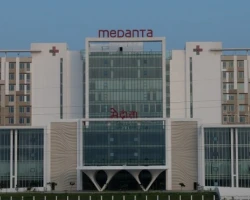
Lucknow, India
Specializations: Cardiac surgery, Vascular surgery, Thoracic surgery, Neurosurgery, Spine surgery, Orthopedic surgery, Oncology
Medanta Lucknow brings state-of-the-art medical care to Lucknow with an aim to extend the highest standard of tertiary healthcare to the whole of Uttar Pradesh.
read more
4
from Bishal Humagain
November 27, 2023
Medanta in Gurugram epitomizes healthcare excellence with cutting-edge facilities and a stellar team of medical professionals. Its patient-centric approach ensures compassionate care, and the hospital's multidisciplinary specialties provide comprehensive solutions. Operating at international standards, Medanta combines research, innovation, and ethical practices to deliver top-notch healthcare.
The hospital's outer environment, adorned with greenery, creates a serene ambiance for patients. Despite occasional crowding leading to lift queues, the staff efficiently manages the situation. The in-house food court, featuring renowned franchises like KFC and Pizza Hut, adds to the convenience and quality of services. Reports are consistently delivered on time, reflecting organizational efficiency. The helpful demeanor of employees further enhances the overall experience. Notably, Medanta embraces technology with a user-friendly mobile application integrated with an e-clinic system, providing patients with seamless healthcare access.
In essence, Medanta - The Medicity is a beacon of medical proficiency, prioritizing patient well-being and contributing to healthcare advancements.
5
from Mohit Rajora
October 02, 2023
Very neat place. We went there to donate blood and the management was good that we don't have to wait for too long.
Quite expensive though but is a good hospital.
4
from Ravi Ranjan
June 30, 2023
One of the leading Top Most Hospital in India. All the major facilities are available. None of the disease is not curable here. Only the issue is that Charges are not affordable by a average Indians. Central Govt should make a capping on charges. Else make these kind of hospital in every state capital. Indian population is growing like anything and we are still very slow in medicine industry
Prices for popular procedures:
-
Mechanical valve replacement
≈ $17,437
-
Bio-prosthetic valve replacement
≈ $12,814
-
Double valve replacement
≈ $11,657
-
Mitral valve replacement (MVR)
≈ $10,814
-
Dual chamber pacemaker insertion
≈ $4,422
-
Coronary artery bypass graft (CABG)
≈ $7,877
-
Heart valve replacement
≈ $11,813
-
Heart valve repair
≈ $13,997
-
Aortic valve replacement (AVR)
≈ $8,600
3.5
5 reviews
4
from Bishal Humagain
November 27, 2023
Medanta in Gurugram epitomizes healthcare excellence with cutting-edge facilities and a stellar team of medical professionals. Its patient-centric approach ensures compassionate care, and the hospital's multidisciplinary specialties provide comprehensive solutions. Operating at international standards, Medanta combines research, innovation, and ethical practices to deliver top-notch healthcare.
The hospital's outer environment, adorned with greenery, creates a serene ambiance for patients. Despite occasional crowding leading to lift queues, the staff efficiently manages the situation. The in-house food court, featuring renowned franchises like KFC and Pizza Hut, adds to the convenience and quality of services. Reports are consistently delivered on time, reflecting organizational efficiency. The helpful demeanor of employees further enhances the overall experience. Notably, Medanta embraces technology with a user-friendly mobile application integrated with an e-clinic system, providing patients with seamless healthcare access.
In essence, Medanta - The Medicity is a beacon of medical proficiency, prioritizing patient well-being and contributing to healthcare advancements.
5
from Mohit Rajora
October 02, 2023
Very neat place. We went there to donate blood and the management was good that we don't have to wait for too long.
Quite expensive though but is a good hospital.
4
from Ravi Ranjan
June 30, 2023
One of the leading Top Most Hospital in India. All the major facilities are available. None of the disease is not curable here. Only the issue is that Charges are not affordable by a average Indians. Central Govt should make a capping on charges. Else make these kind of hospital in every state capital. Indian population is growing like anything and we are still very slow in medicine industry
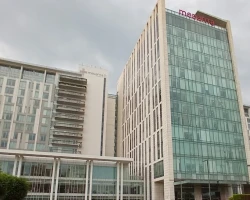
Gurgaon, India
Specializations: Cardiac surgery, Vascular surgery, Thoracic surgery, Neurosurgery, Spine surgery, Orthopedic surgery, Oncology
Medanta – The Medicity is one of India’s largest multi-super specialty institutes located in Gurgaon, a bustling town in the National Capital Region. Founded by
read more
5
from P Rohini
December 08, 2023
A great place for patients surgery, treatment, medication and health. Staff's behave gently with all precautions and care. Patient will feel another home here in such critical cases. I am thankful to the Hospital and it's services.
5
from Pallavi Bhatnagar
June 09, 2023
One of the best hospital in town, with a wide array of speciality doctors and well equipped ICU.
Rooms are clean n hygienic, nursing staff and security personnel are very courteous and helpful.
Although its lacking few things in hospitality and facilities to attendants n visitors. Such as -
1. More sitting space in waiting/reception area is required.
2. Central AC or proper ventilation in lobby areas of all floors
3. ICU waiting area or lounge has just 12 beds for attendants of 40+ ICU patients, which is not at all sufficient.
4. Attendants have no place to sleep except floor area
5. 2 ACs and no ventilation in Super high ceiling of ICU lounge makes it suffocating with so many people.
6. House-keeping staff is not upto the mark.
Rest all is fine.
Ignoring these things, it’s one of the top medical facility provider of the town.
N highly recommended.
2
from Rahul Gupta
May 28, 2023
Staff is good, but very expensive medicine prescribed by the doctor and medicine are unique and available only shop exist in hospital only & on print rate without any discount, after discharge every visit is chargable basis, they have looted. Mediclaim staff is worst and non supportable, they charged hudge amount if you have any mediclaim plan, rest all ok.
Prices for popular procedures:
-
Mechanical valve replacement
≈ $17,437
-
Bio-prosthetic valve replacement
≈ $12,814
-
Double valve replacement
≈ $11,657
-
Mitral valve replacement (MVR)
≈ $10,814
-
Dual chamber pacemaker insertion
≈ $4,422
-
Coronary artery bypass graft (CABG)
≈ $7,877
-
Heart valve replacement
≈ $11,813
-
Heart valve repair
≈ $13,997
-
Aortic valve replacement (AVR)
≈ $8,600
4.3
5 reviews
5
from P Rohini
December 08, 2023
A great place for patients surgery, treatment, medication and health. Staff's behave gently with all precautions and care. Patient will feel another home here in such critical cases. I am thankful to the Hospital and it's services.
5
from Pallavi Bhatnagar
June 09, 2023
One of the best hospital in town, with a wide array of speciality doctors and well equipped ICU.
Rooms are clean n hygienic, nursing staff and security personnel are very courteous and helpful.
Although its lacking few things in hospitality and facilities to attendants n visitors. Such as -
1. More sitting space in waiting/reception area is required.
2. Central AC or proper ventilation in lobby areas of all floors
3. ICU waiting area or lounge has just 12 beds for attendants of 40+ ICU patients, which is not at all sufficient.
4. Attendants have no place to sleep except floor area
5. 2 ACs and no ventilation in Super high ceiling of ICU lounge makes it suffocating with so many people.
6. House-keeping staff is not upto the mark.
Rest all is fine.
Ignoring these things, it’s one of the top medical facility provider of the town.
N highly recommended.
2
from Rahul Gupta
May 28, 2023
Staff is good, but very expensive medicine prescribed by the doctor and medicine are unique and available only shop exist in hospital only & on print rate without any discount, after discharge every visit is chargable basis, they have looted. Mediclaim staff is worst and non supportable, they charged hudge amount if you have any mediclaim plan, rest all ok.
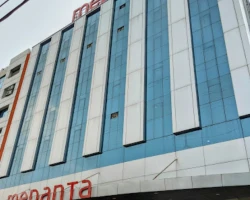
Indore, India
Specializations: Cardiac surgery, Vascular surgery, Thoracic surgery, Neurosurgery, Spine surgery, Orthopedic surgery, Oncology
Our multi-super specialty hospital in Indore brings the highest quality of medical services to central India. The 175-bed facility is an extension of the flagship
read more
Clinics grouping by rating
Clinic with the highest rating of 4.8 — Arneja Heart & Multi-Speciality Hospital in Nagpur, India and 3 more, clinic with the most reviews number of 35757 — Aster CMI hospital in Bengaluru, India.
With rating 4.0 and over — 28 clinics .
Countries with the highest number of clinics treating the diseases:
Mitral valve stenosis:
worldwide
580 clinics
India
39 clinics
Brazil
32 clinics
Germany
29 clinics
Turkey
29 clinics
Colombia
26 clinics
Related procedures:
Procedures are likely to be used for Mitral valve stenosis treatment:
Balloon valvuloplasty,
Bio-prosthetic valve replacement,
Double valve replacement,
Mechanical valve replacement,
and
Mitral valve replacement (MVR)
.
Quick navigation
Procedures
Diseases
- Balloon angioplasty and stenting of aorta coarctation $1,392 - $3,732
- Cardiac catheterization $1,884 - $1,884
- Coarctectomy in children $8,527 - $8,527
- Coil embolization of intracardiac shunts and fistulas $4,236 - $4,236
- Extracorporeal membrane oxygenation (ECMO) by request
- Heart tumor surgery $11,346 - $11,346
- Intraaortic balloon pump (IABP) procedure $1,978 - $1,978
- Left atrial appendage occlusion $7,718 - $7,718
- MAZE procedure $3,290 - $3,290
- Minimally invasive valvular heart surgery with valve repair or replacement by request
- NobleStitch™ PFO closure procedure by request
- Open-heart intracardiac foreign body removal $15,680 - $15,680
- Patent ductus arteriosus (PDA) open heart surgery in adults $5,242 - $5,242
- Percutaneous ASD closure $835 - $5,485
- Percutaneous closure of ventricular septal defect (VSD) $2,228 - $5,835
- Rashkind procedure ≈ $4,965
- Surgery for tetralogy of Fallot (TOF) in adults $2,228 - $4,901
- Surgical ventricular restoration (SVR) $9,601 - $9,601
- Transcatheter closure of patent ductus arteriosus (PDA) in adults ≈ $3,310
- Ventricular septal defect (VSD) repair $5,950 - $8,033
- Aortic valve insufficiency
- Aortic valve stenosis
- Atrial fibrillation (AFib)
- Coarctation of the aorta (CoA)
- Foreign bodies in the heart
- Heart failure
- Heart tumor
- Heart valve disease
- Mitral valve insufficiency
- Mitral valve stenosis
- Multivalvular disease
- Myocardial infarction (MI)
- Pneumonia
- Pulmonary hypertension
- Sinus of valsalva aneurysm (SOVA)
- Tricuspid valve insufficiency
- Tricuspid valve stenosis
- Valvular insufficiency
- Ventricular aneurysm
- Ventricular septal rupture (VSR)
